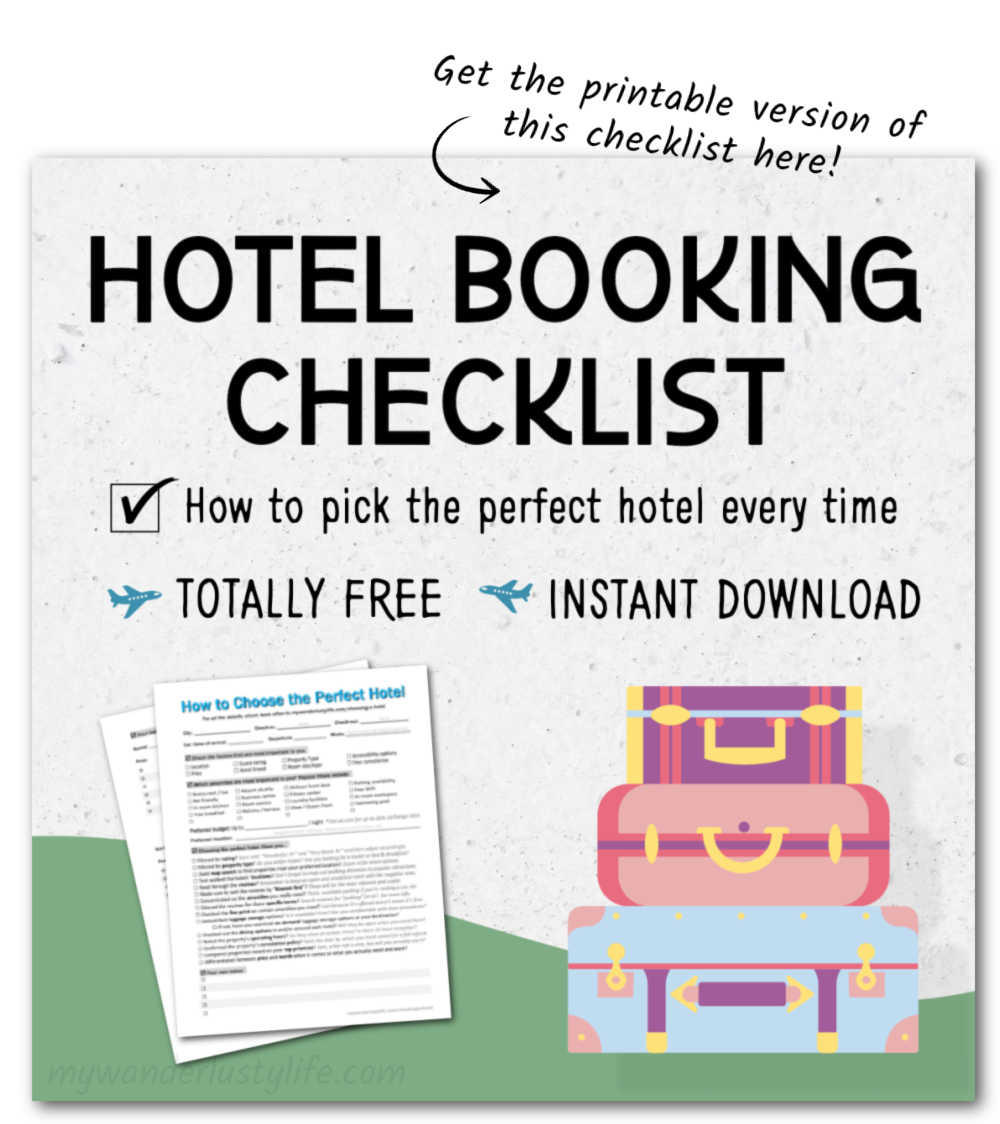Being that you’re here looking for the most important factors to consider when choosing a hotel, consider your search over. You’ve hit the jackpot, the mother lode, the whole enchilada of hotel search know-how.
You see, I’ve booked hotels everywhere. I’ve booked them here and I’ve booked them there. In a box, with a fox, on a train, in the rain, you name it. I’ve booked so many hotels, in fact, that I’ve become a bona fide hotel booking guru. (According to both my vivid imagination and my credit card statements, that is.)
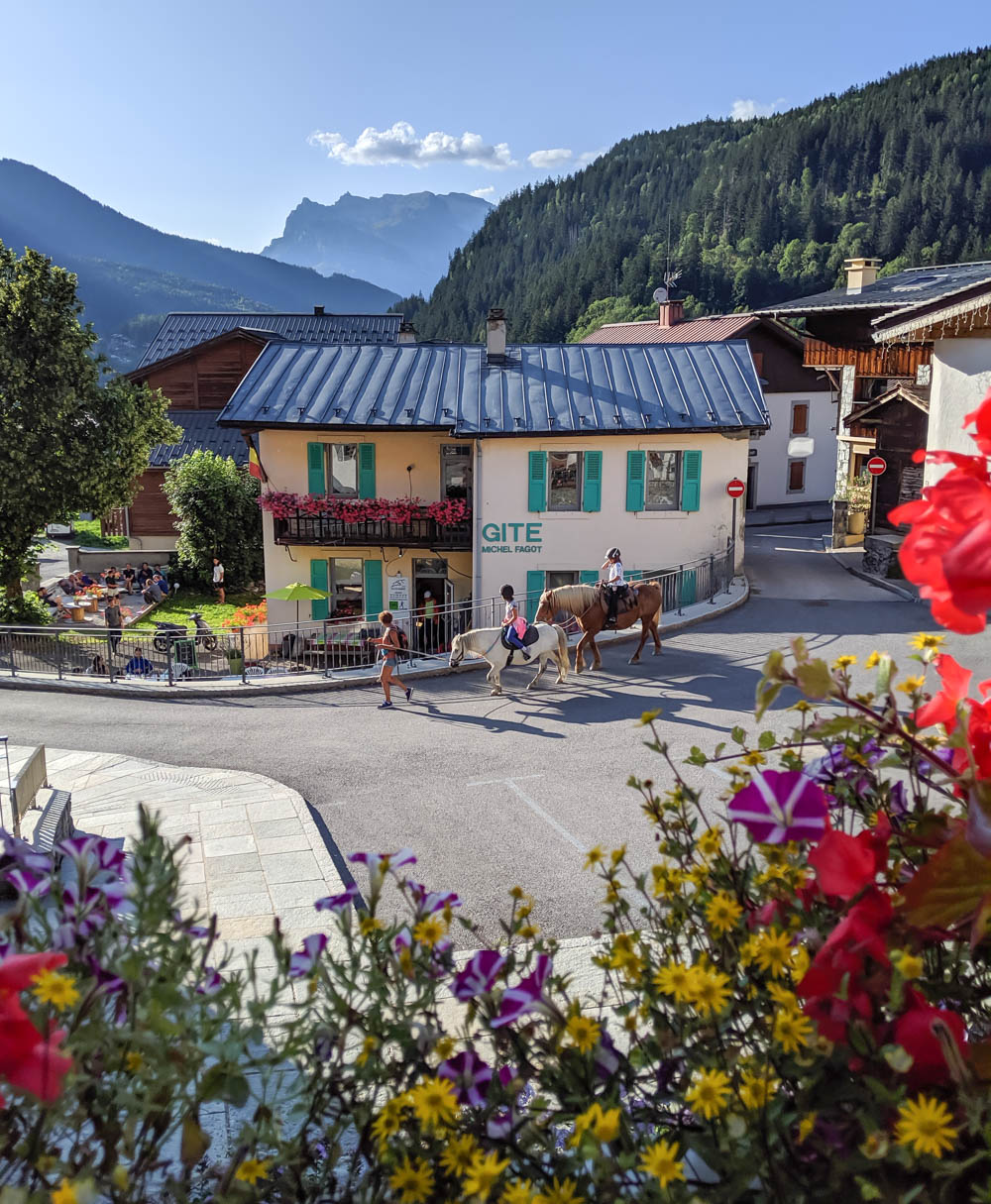
Choosing a hotel that’s juuuust right
You see, I refuse to book anything less than the perfect hotel. I refuse to settle for anything inconvenient, overpriced, or, as we gurus like to say, sketchy as hell.
So, to help you do the same, I’ve put together all my best hotel booking tips and the most important factors to consider when choosing a hotel so you can pick the perfect one every time. Consider this your hotel booking Masterclass.
My favorite hotel booking site and the one I use every time is Booking.com. Because it’s really the easiest and most user-friendly one there is, I will use Booking’s platform to detail all these factors to consider when booking a hotel.
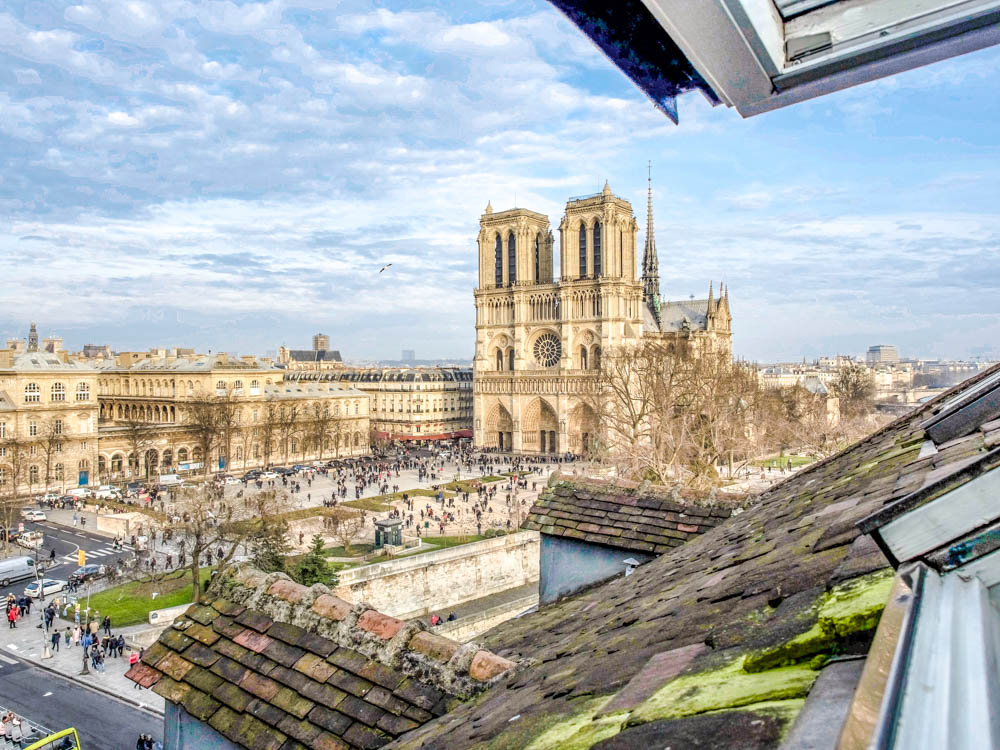
1. Use ratings to weed out the worst options
Of all the factors to consider when choosing a hotel, the #1 first thing I do is filter the results for hotels with ratings of 9+ only.
There are no less than 20 different criteria by which to filter your hotel results. These include such things as budget, neighborhood, amenities, property type, and many more. However, I find weeding out the worst of the bunch from the get-go is the best place to start.
Filtering for hotels with a rating of “Wonderful: 9+” will show you only the properties that have a rating of between 9 and 10 based on user reviews. This filter goes down to even “Pleasant: 6+”… but why would you want to waste your time looking at properties that barely have a passing score? No thank you.
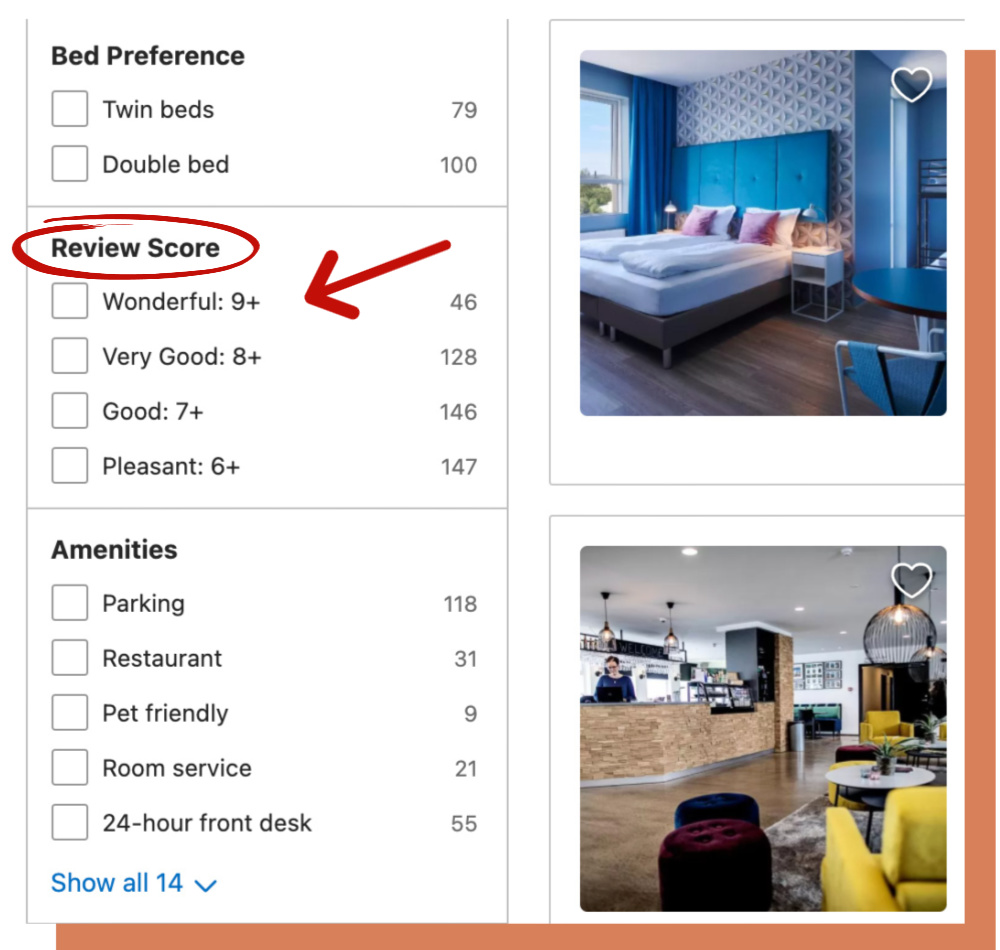
The hotels with ratings of 9+ tend to be the cleanest, friendliest, most pleasant hotels in the best locations. Sometimes, though, they are also the most expensive. That being said, depending on the destination, the number of 9+ hotels may be few and/or way out of your budget.
Lower your filters one at a time as needed
In that case, I will add “Very Good: 8+” into the mix. That typically opens up many more hotel options. And almost always, hotels with a rating of 8+ are more than acceptable! Only a few times have I ever had to lower my standards to “Good: 7+” but even then it was never the worst place I’ve stayed.
The big thing to take away from this is—it all depends on your destination. With a city like Paris, you’re going to have TONS of options for all rating levels. In an alpine village like Gimmelwald, Switzerland where there are literally only 3 or 4 accommodation options, this criteria won’t even matter. (They’re all fantastic anyway!)
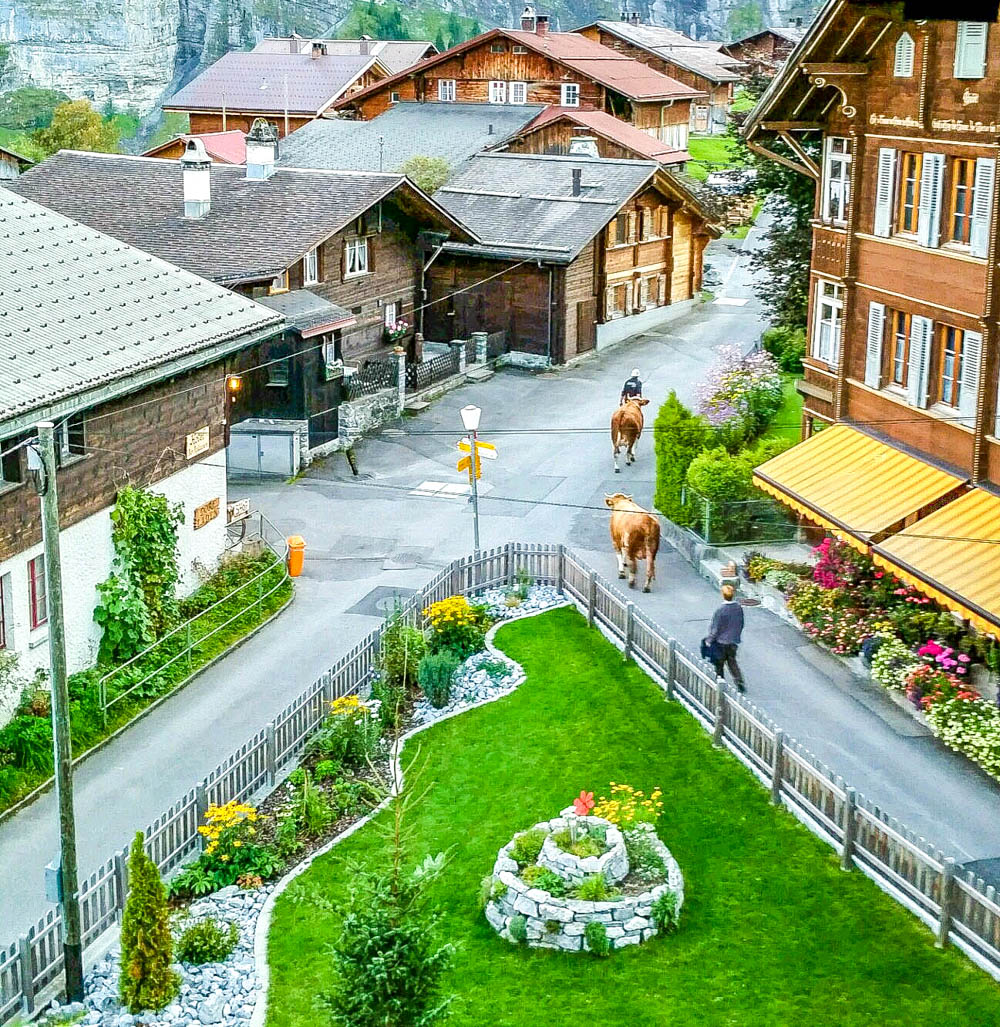
Regardless, I find this an important first step in choosing the perfect hotel. Otherwise, you run the risk of picking out what you think is a great hotel based on other factors like price and location, but then see the average review is a 5/10 at the last minute (or fail to notice it at all–eek!).
All things considered, I find almost all of the hotels I end up choosing in the 8+ range. This combines the ratings I want to see and the location I want with prices I’m comfortable with paying.
Pro tip: On Booking.com, after filtering for ratings of 8+ and 9+, you can even sort the results by “best reviewed and lowest price.” This takes into account both of these priority criteria when sorting the results for you.
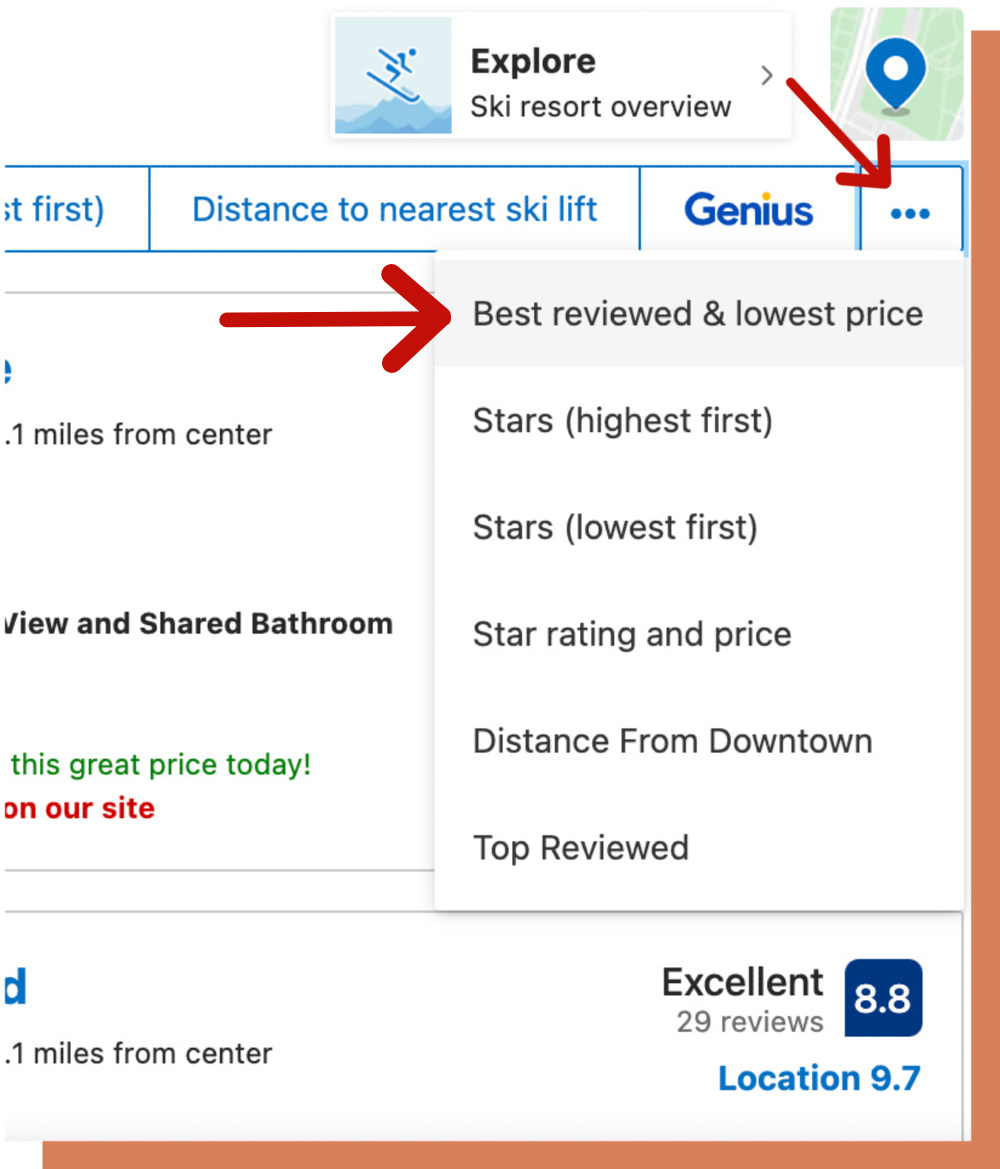
2. Search by accommodation type to get exactly what you want
One of the many filters you can prioritize when sifting through the factors to consider when choosing a hotel is property type.
Personally—and this is just me—I greatly prefer to stay at hotels. So, I always make sure “hotels” is checked here. I hate finding the perfect room only to find out later it’s actually a room in someone’s apartment or house. Or that what I’m really booking is a single bed in a 16-person dorm.
I’m perfectly fine staying in vacation rentals and hostels when the trip necessitates it, but I want to know what I’m booking up front. The only surprise I want at check-in is complimentary cookies.
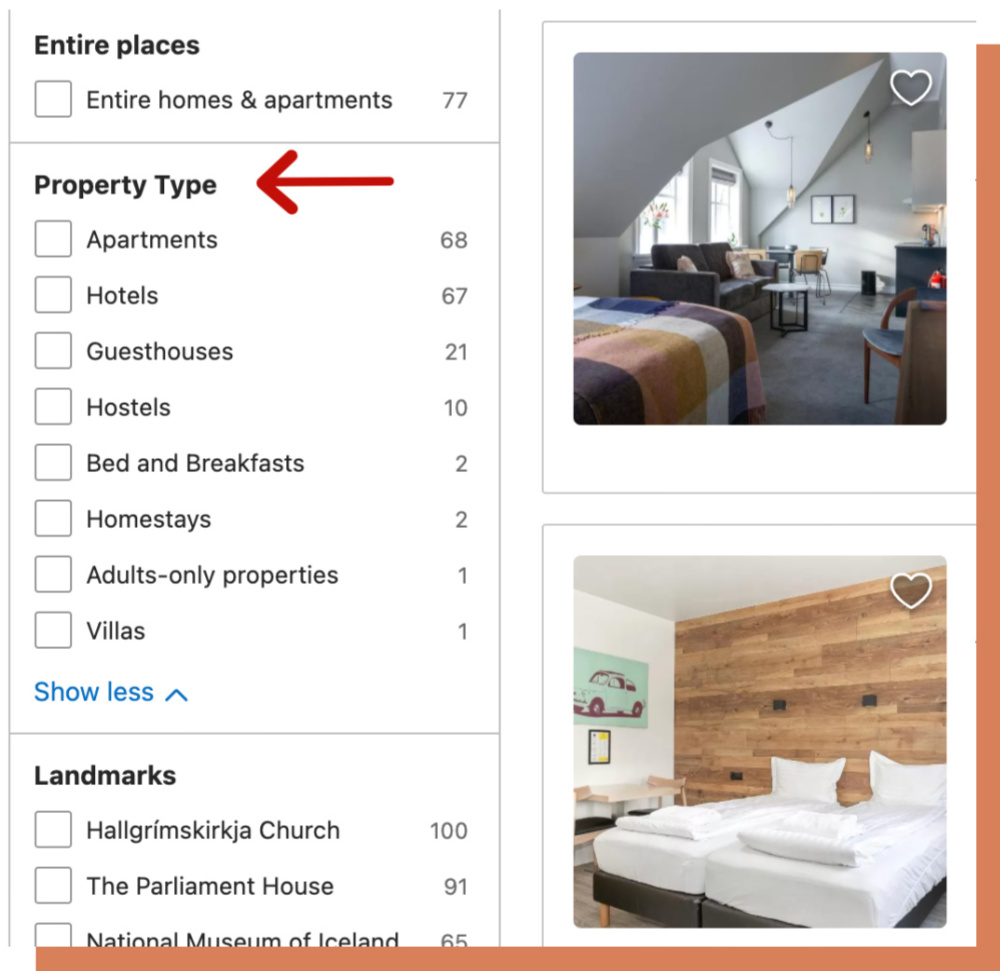
That being said, I know many travelers actually prefer this type of accommodation. One of the great things about Booking.com is that they also offer apartments, homestays, bed and breakfasts, and other types of vacation rentals. I.e., you don’t have to deal with Airbnb at all—you can book these rentals on “regular” booking sites too.
So, if you have a preference, don’t forget to filter for it at the beginning!
Heading to Belize? Check out my review of the Black Rock Lodge – one of the most amazing jungle lodges I have ever stayed at!
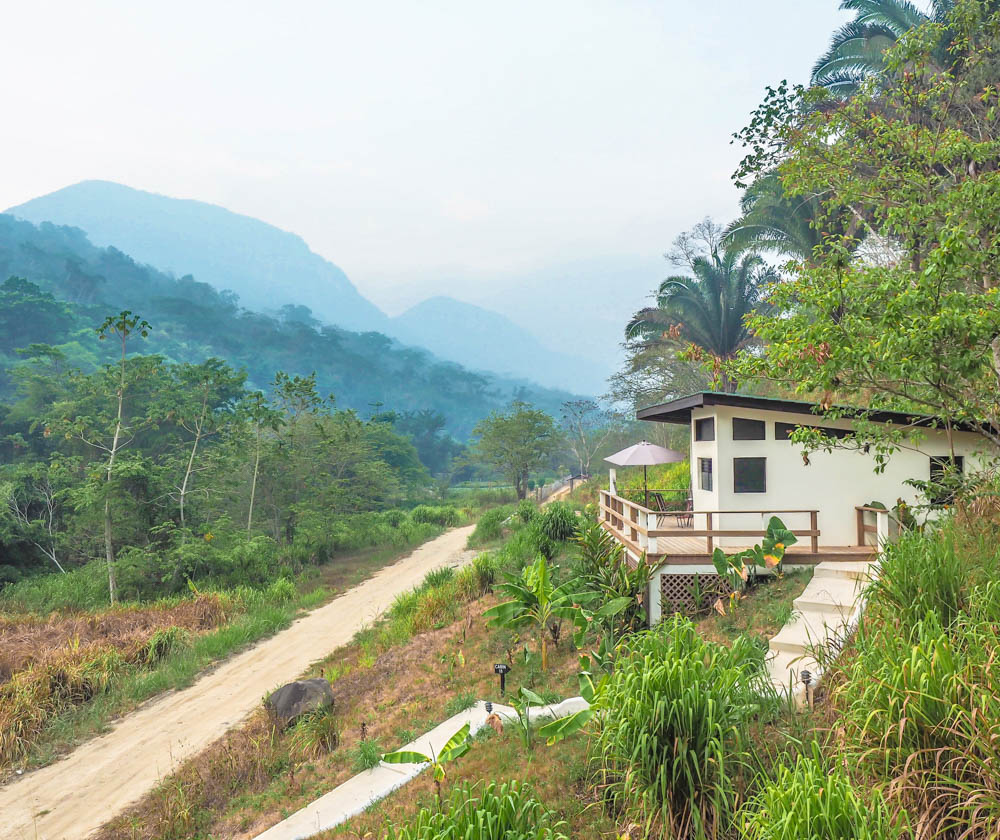
3. Use map search to find the best locations
Another of my top three factors to consider when choosing a hotel is the location. But not just the hotel’s location in general, the importance of the hotel’s location in relation to your exact trip.
For instance, when visiting Munich, the “ideal location” changes at different times of the year. For Oktoberfest, you’ll most definitely want a hotel as close to the festival as possible. During the rest of the year, that’s not really the most ideal location for visitors in relation to the many things to see and do.
On other trips, maybe you want a hotel near a train station or metro stop. Perhaps you need a hotel near a convention center. Maybe you want a hotel with a great view of a landmark. To find the absolute best hotel for your exact needs, and to not even have to bother with addresses and calculations, forget sorting your results altogether and simply use the map search.
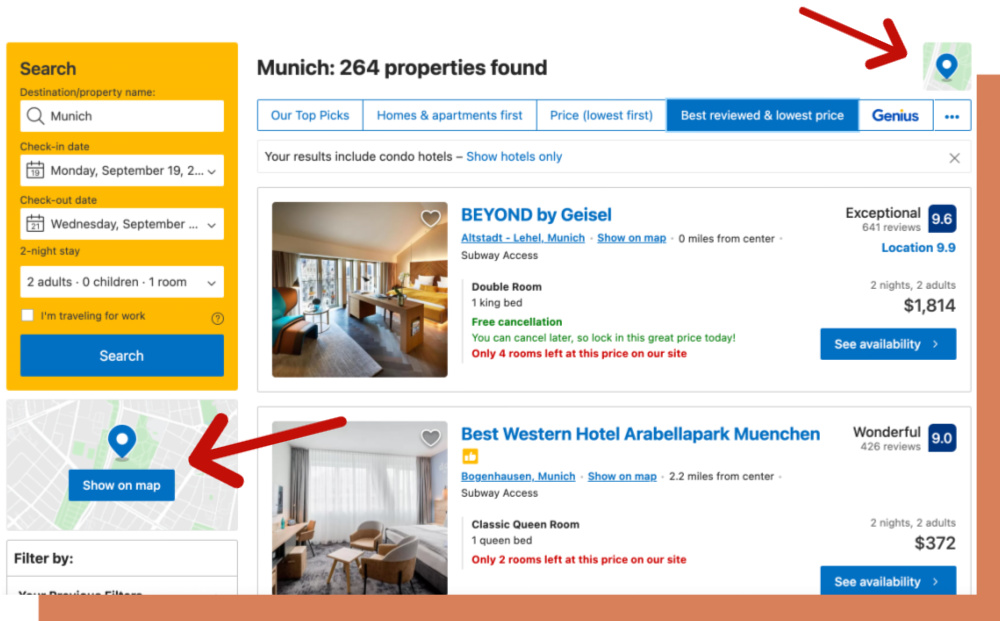
Location location location
After filtering your results for the things that mean the most to you, click on “Show on map.” You’ll then be able to see all your hotel options on a map of the city. (You can do this under the search box on the left or by clicking on the tiny map icon in the upper right.)
From that page, you can hone in on the exact (or roundabout) location you’d prefer and see available hotels in that area. Hover over the blue markers and you’ll get a snapshot of each hotel that shows its price, rating, and more.
Note that if it appears there aren’t that many properties showing, simply zoom in. Zooming in will reveal more hotels in the area shown. You can even click on the small map next to the zoom buttons to see the streets as they look in real life if that helps you decide.
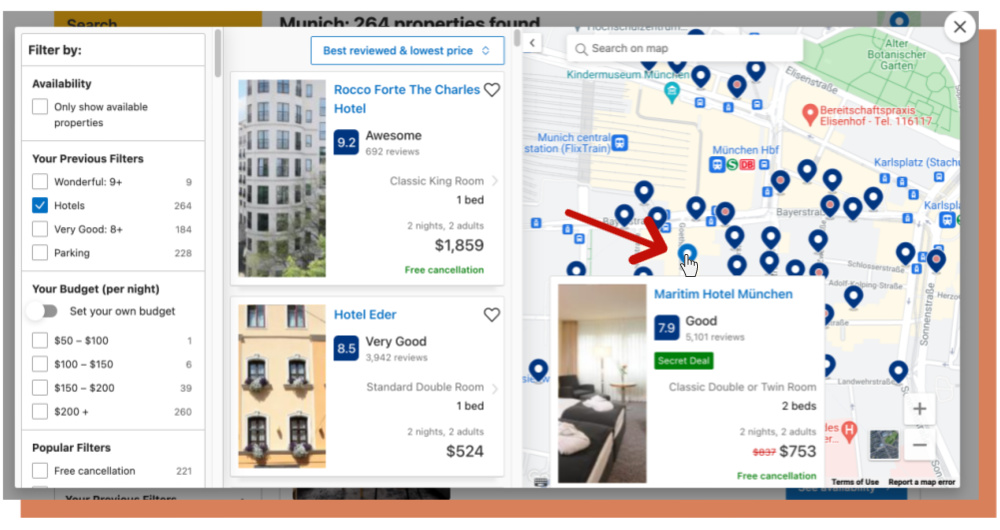
For me, this is my absolute favorite method for choosing a hotel. I only use the map search and almost never use the standard sorting methods.
Pro tip: On the left menu, be sure to check the box for “Only show available properties” if your dates aren’t flexible. This will remove all the hotels that are already fully booked during your dates. This won’t matter as much if your dates are flexible and you want to see all possible hotels.
Heading to New York City? Check out my guide to the Pod Hotels of New York City – a totally fun (and affordable!) hotel experience that’s as unique as New York.
4. Test drive the location when choosing a hotel
After I narrow my search down to a few choice hotels, the next thing I do is test drive the location. As a female traveler, as a female traveler who often travels alone, as a female traveler who often travels alone who also has crippling anxiety, I like to make sure the hotel’s location is something I feel totally comfortable with. Just because it’s in a “good” neighborhood or whatever doesn’t mean certain streets (etc.) won’t still give you the creeps.
To do this, I type the hotel’s address into Google Maps, drop my little yellow Street View guy, and check out the location as if I’m already there. The yellow Street View dude is only if you’re using desktop. On mobile, just click the real-life image in the bottom left corner.
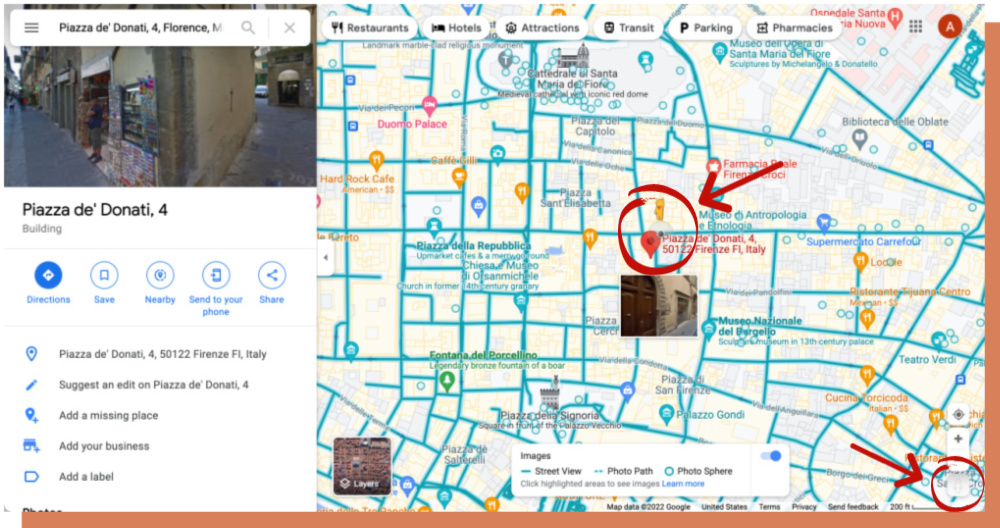
This is especially helpful if, say, you’re a female traveling alone, you’ll be arriving at night, and you don’t really want to walk down a series of dark alleys by yourself. This helps to see what the location looks like (is it covered in trash or sketchy as hell?), what’s nearby (is it next door to an adult video store?), how accessible it is (is it easy to get to the main streets?), and so much more.
To put it another way, you can totally pick up a location’s vibe from doing this. If something rubs you the wrong way, you’ll feel it. Don’t wait until you arrive (when it’s too late) to be like, “Oh damn this place is creeping me out.”
(The example below is a totally random hotel I found in Florence, Italy. The Albergo Firenze, if you’re interested in spending a couple days in Florence, which you should.)
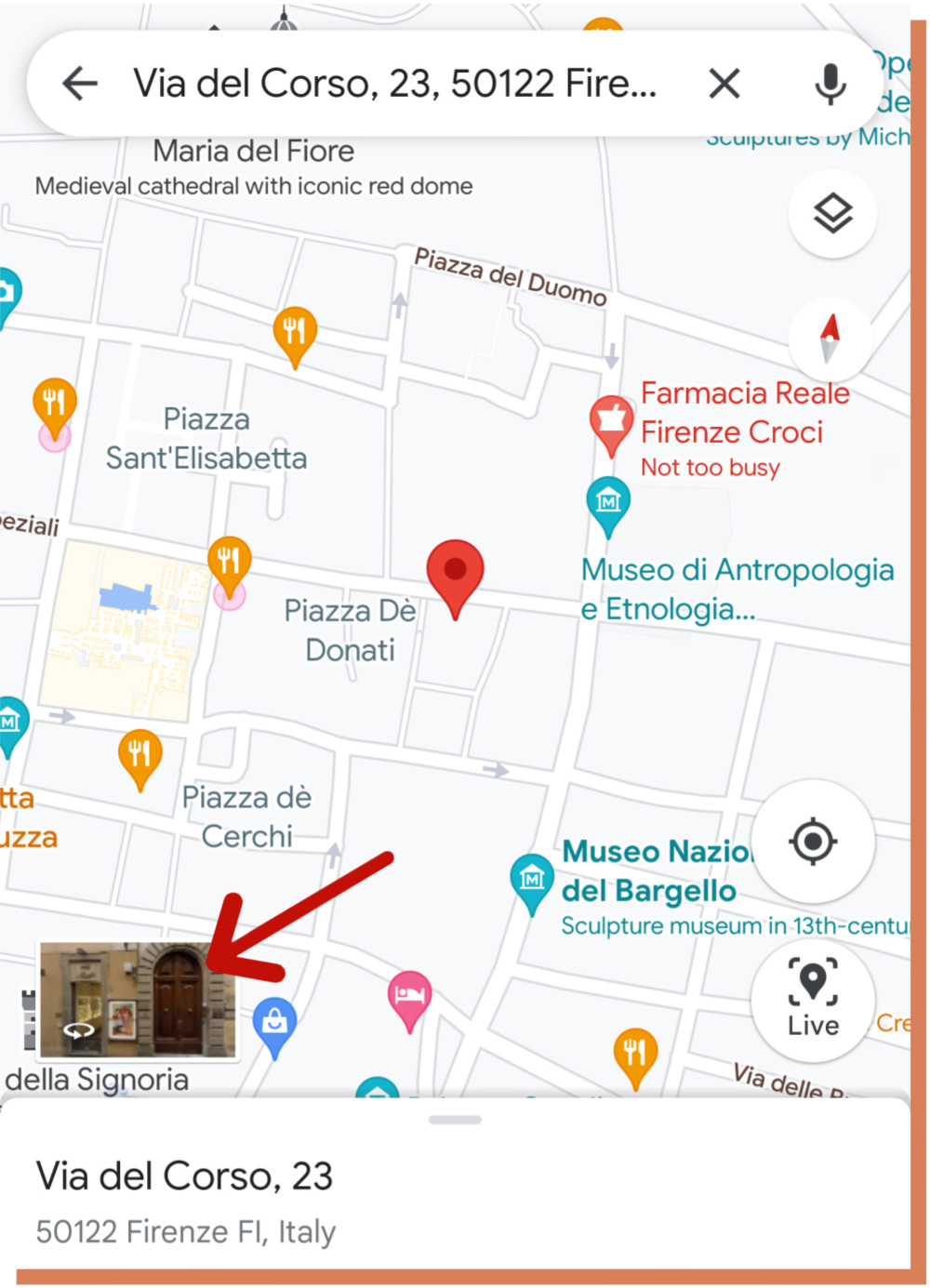
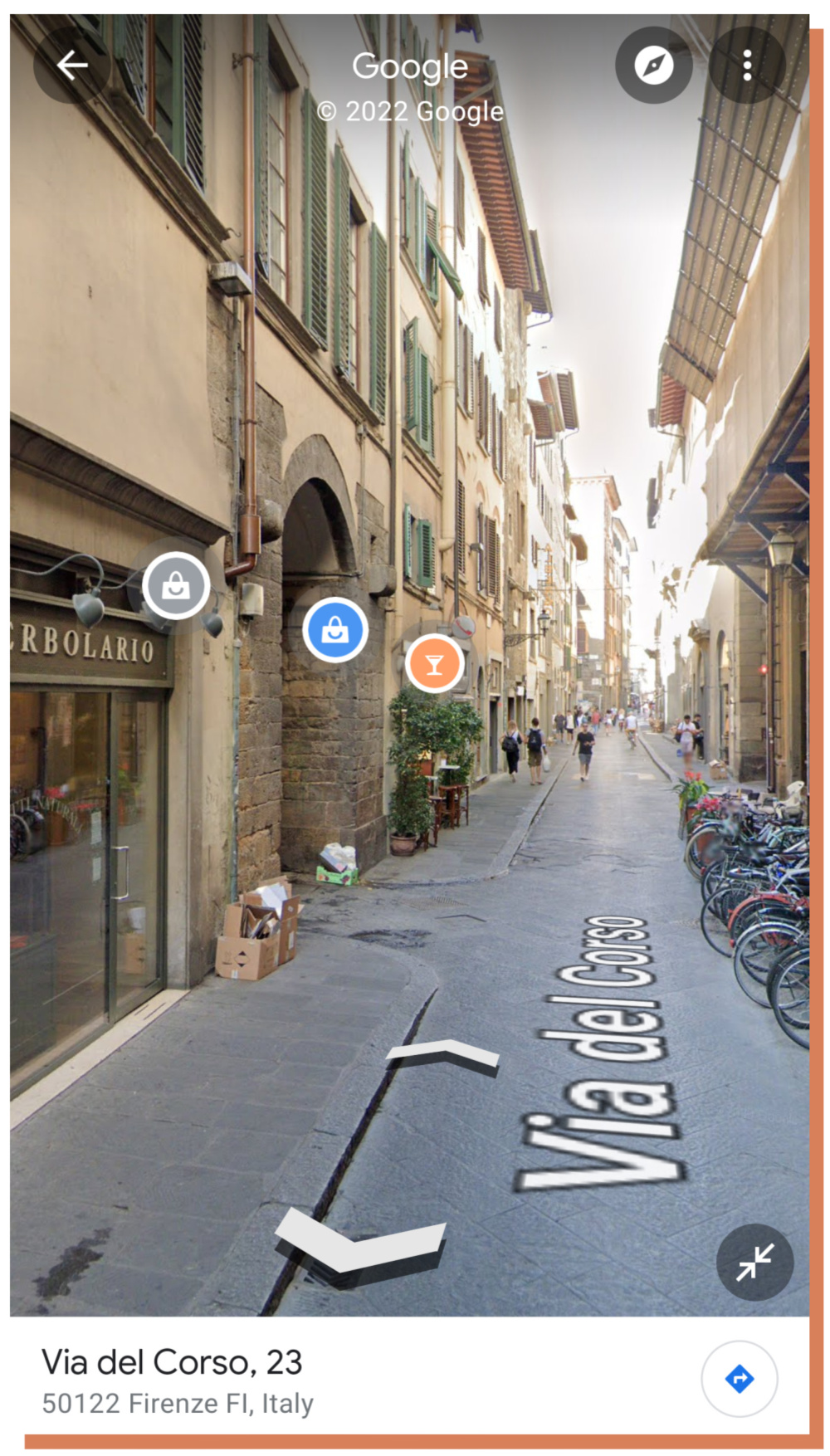
5. Reviews can be a wealth of information, but…
When weighing all the factors to consider when choosing a hotel, I give tons of weight to reviews. However, I take each one with a grain of salt. If that makes sense.
Like they’ve always said, word of mouth is the best kind of advertising. If I want to know what a hotel is really like, and not just the way they present it online, I want to read the experiences of people who’ve stayed there themselves.
However, and this is a big however, you absolutely have to consider the source each and every time, especially on the negative reviews. Do not take them at face value. Really read them and pick up all the things they aren’t saying as well.

It’s easy to spot when a psychopath (sure I’ll say it) is just ranting for no justifiable reason or is being a totally stuck up a-hole. That person probably doesn’t have a single nice thing to say about any place or any business. So, move along. Like this one, there are actually tons of negative reviews that reveal exactly nothing about the property in relation to other properties.
Heading to Istanbul? Check out my review of the Hotel Momento Golden Horn – the Turkish hotel I truly recommend.

Always consider the source when choosing a hotel based on reviews
For instance, some examples of times you’ll need to consider the source:
- Is the person leaving the negative review an American complaining about the small showers at the hotel in Italy? (Clearly, this is their first time visiting Italy.)
- Is the person complaining about the small hotel rooms in New York City? (It’s New York City!)
- Were the complaints about the lack of breakfast buffet left during a pandemic? (Go breathe on your own food, geez.)
- Are the negative reviews based on things like “No wow factor”, “Bad décor”, “Expensive mini bar” (no shit), or “I ordered a medium burger at the restaurant but it was slightly red in the middle”?
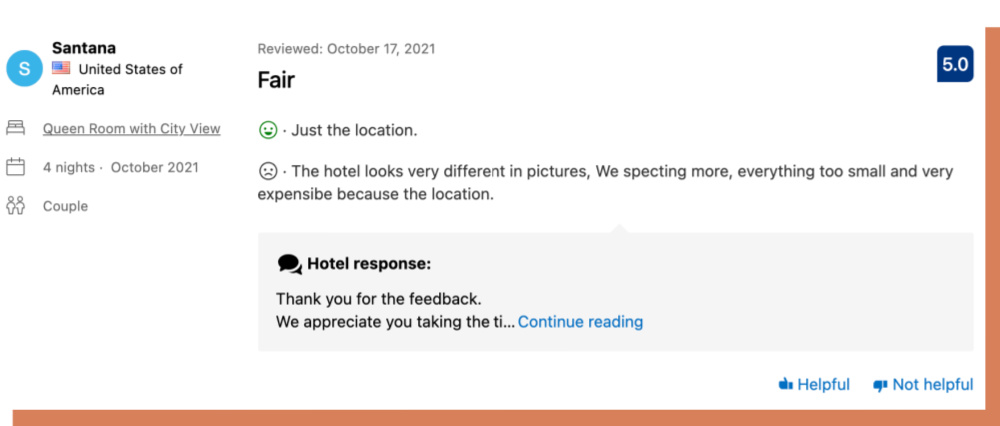
Or there’s the guy who left a bad review for his hotel because, during his visit in May 2020, all of the restaurants in town were closed. (Umm, did you miss that huge glaring memo, dude?) So, he bought some microwavable meals but his room didn’t have a microwave so he had to buy one of those too. But, by all means, give the hotel a 1/10, sure.
With every “the staff was rude” you’ll get ten of “the staff was incredible!” So, read reviews, yes, but don’t take the negative ones flat-out. (Honestly, I’m reading some of the best stuff while researching this. Of all the factors to consider when choosing a hotel, this is by far the most hilarious to sift through.) If you want a great account to follow in this regard, check out Subpar Parks.
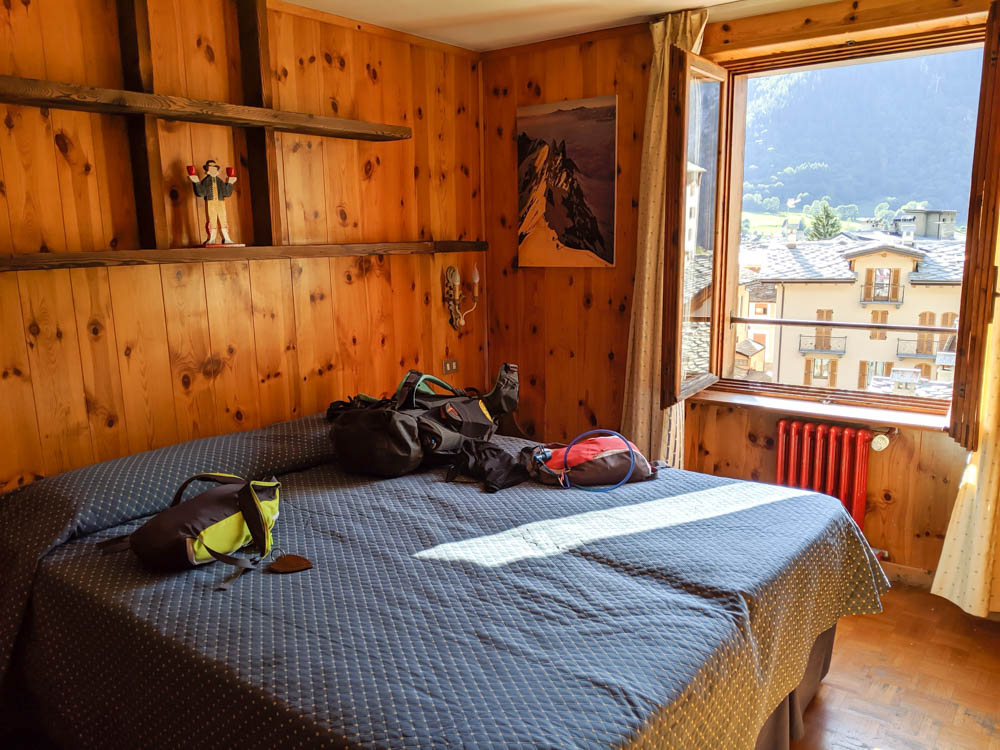
Negative reviews that are worth reading
However there are also genuine concerns to note—safety concerns, the truth about the WiFi or parking situations, ongoing construction that’s very loud or intrusive, hidden fees, etc.
While reading tons of reviews for this post, I came across one hotel where most of the negative reviews were about the hotel charging them twice for their stay, or charging them $100 or $500 for some weird fee, etc. Major red flags here! That doesn’t mean don’t stay there, but it does mean you need to stay on top of things and make sure you read everything you sign closely.
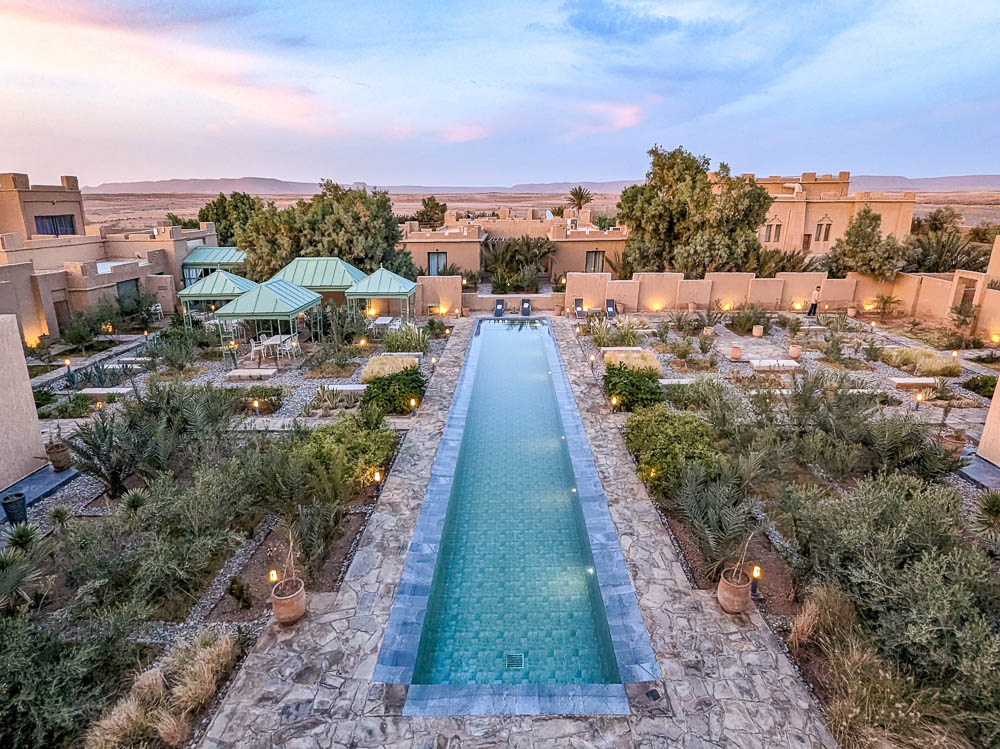
Heading to Morocco? Check out all the Morocco riads, hotels, kasbahs, and desert camps I stayed in here.
6. Stick to the most recent reviews only
When checking out a hotel’s reviews, most sites, Booking included, will show you the “most relevant” reviews first. Who or what determines the relevancy here is beyond me, but chances are they’re skewed.
And often, the “most relevant” reviews are already a couple of years old. Maybe that didn’t matter as much in precedented times, but it definitely matters now. Chances are, what you can expect from a hotel in 2023 is going to be quite different from what you read in reviews from 2019.
Besides that little factor, older reviews are almost always out-of-date and totally irrelevant. The remodeling construction people mentioned two years ago? Definitely finished by now. Maybe someone complained about the parking situation back in 2018 but the hotel has since added a new parking garage.
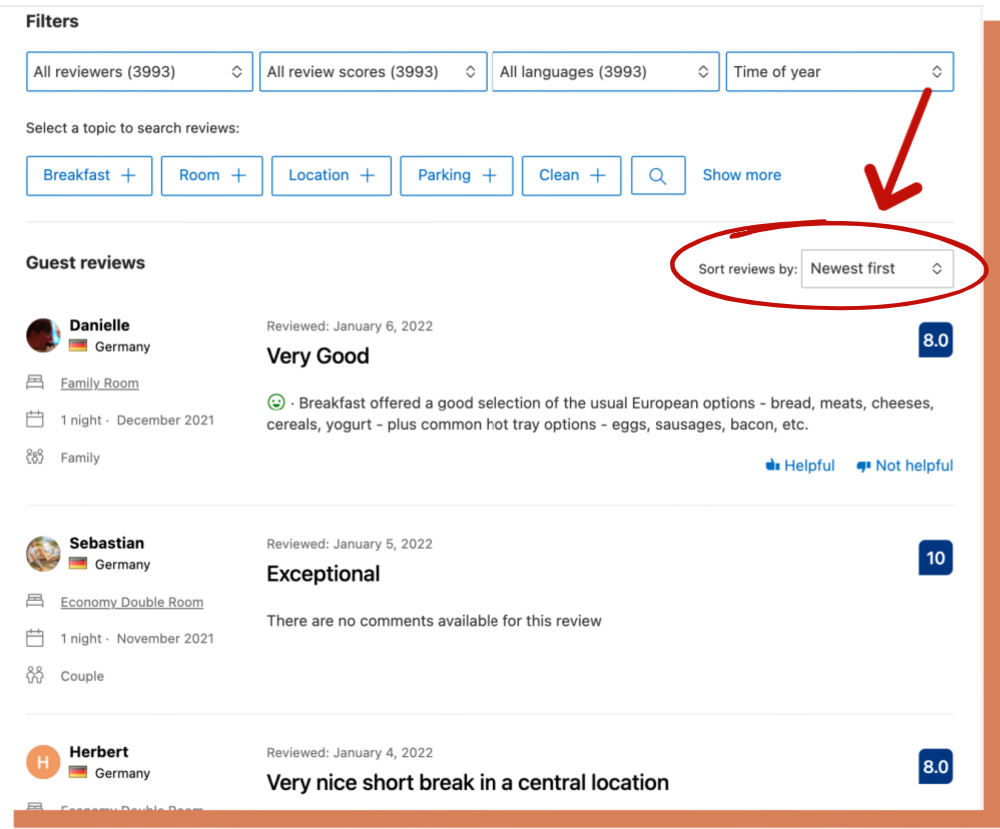
Likewise, pre-2020 the hotel may have boasted a grand breakfast buffet but has (understandably and thankfully) done away with that. Hotels change management, policies/prices/amenities change, and things many patrons may have complained about have gotten fixed.
To get the most accurate and up-to-date experiences, you’ll want to sort the reviews by “Newest first”. To me, most recent is always the most relevant.
Heading to Germany? Check out my post on the best hotels and rentals near Neuschwanstein Castle for hotels + fairy tales.
7. Concentrate on the amenities you really need
On the list of factors to consider when choosing a hotel, I’m definitely not talking about the gym you won’t workout in, the business center you won’t send emails from, or the ironing service you absolutely will not pay for.
When choosing a hotel that will be perfect for you, concentrate only on the amenities you really, actually need. Such as:
- On-site or nearby parking if you plan to rent a car during your stay
- Reliable WiFi if you need to do some remote work while you’re there
- In-room safe if you’ll be leaving valuables behind while you’re out exploring
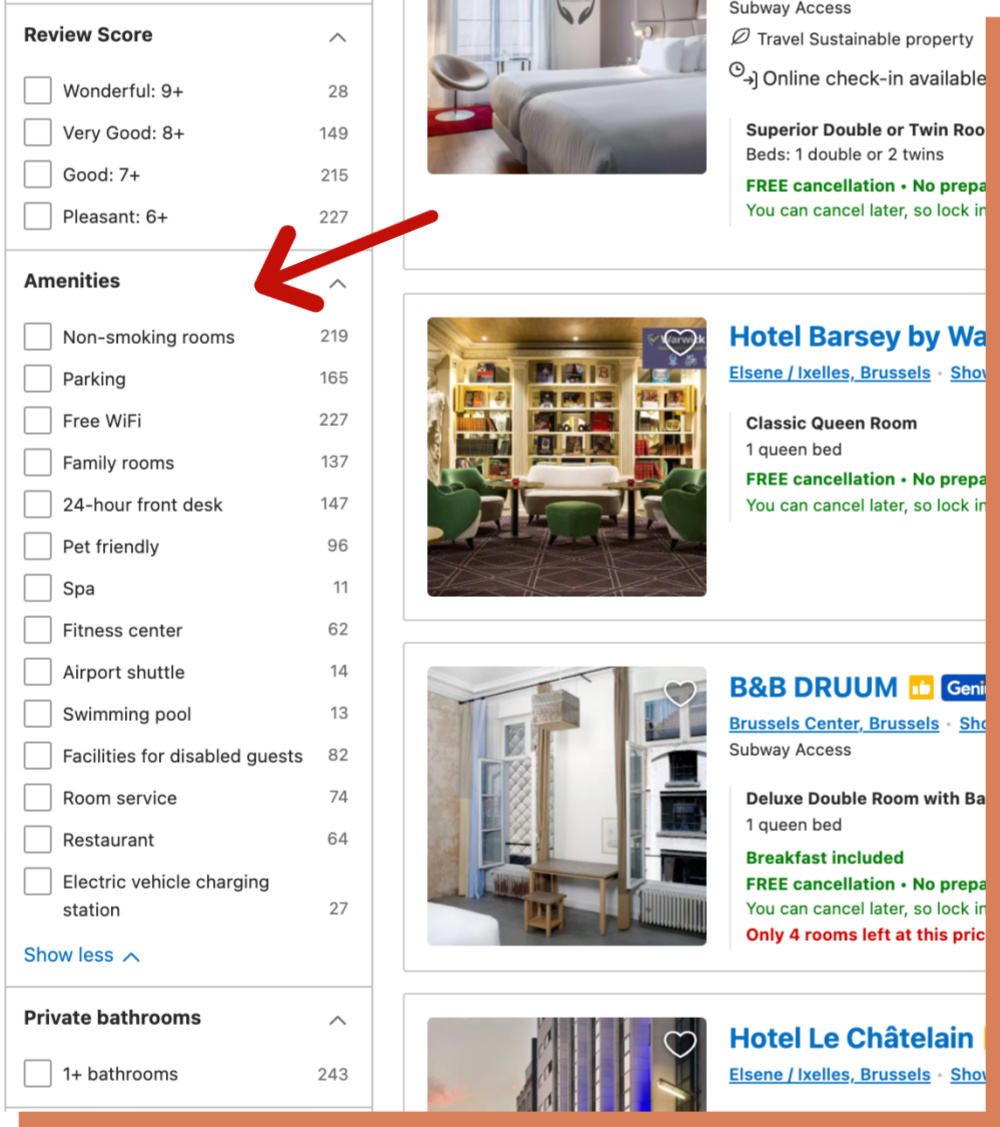
Not only concentrate on these, but do not forget about these. If you’ll be renting a car for your trip, you do not want to roll up to your hotel after a long flight only to find it’s on a busy street with no parking in sight, or a valet-only situation.
When choosing a hotel, be sure to filter for the amenities you absolutely have to have, and forget about everything else.
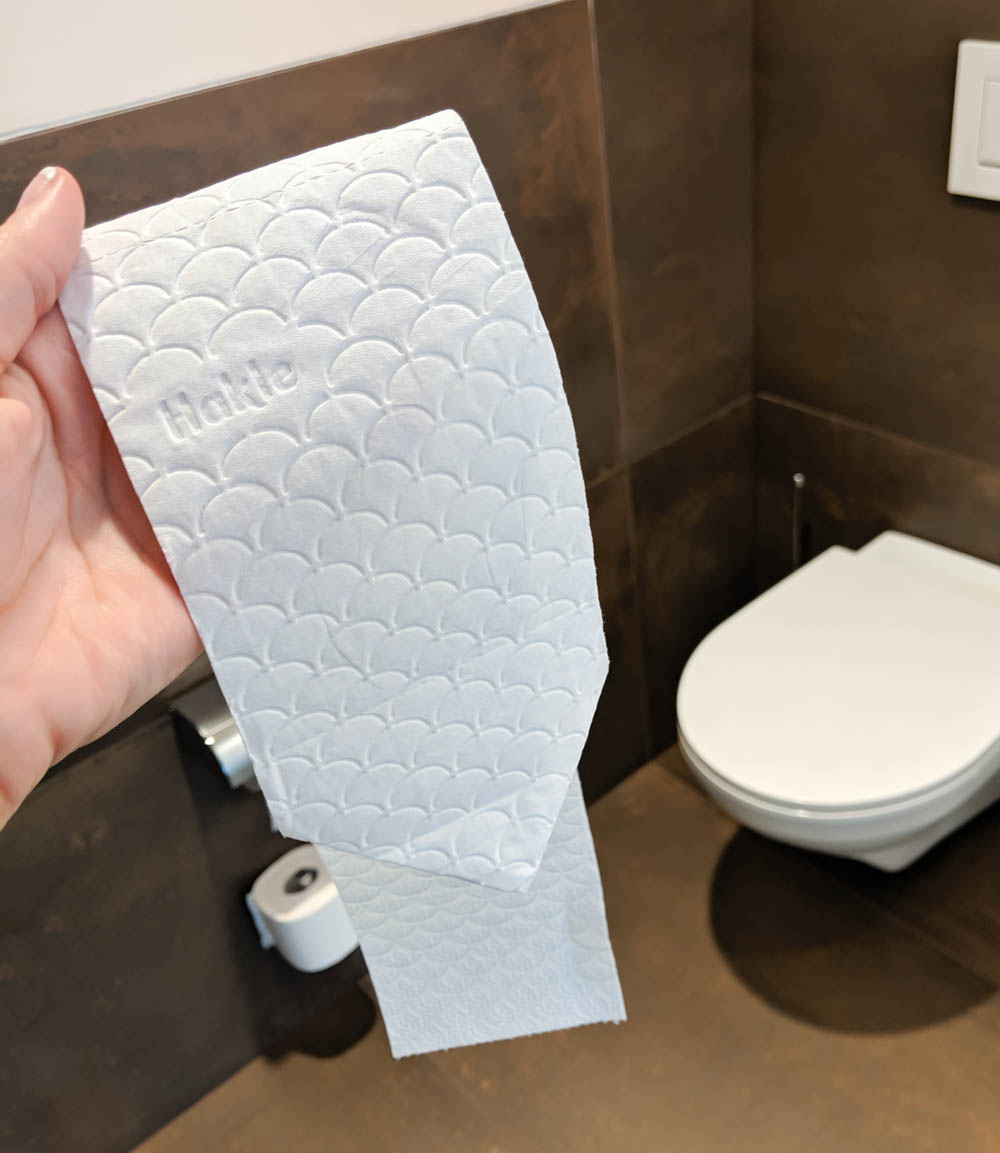
Search the reviews
Additionally, don’t simply take the hotel’s word for it. Just because “parking” is listed as an amenity for a hotel property doesn’t mean it’s free, or that it’s on site, or that there are enough spots for everyone. If parking is something you really need, do a little more digging to get the real info.
For this, I’ll click on “guest reviews” in the top right corner and do a search for the word “parking.” This will bring up all reviews that mention parking. This way, you’ll be able to see what others have to say about the parking situation.
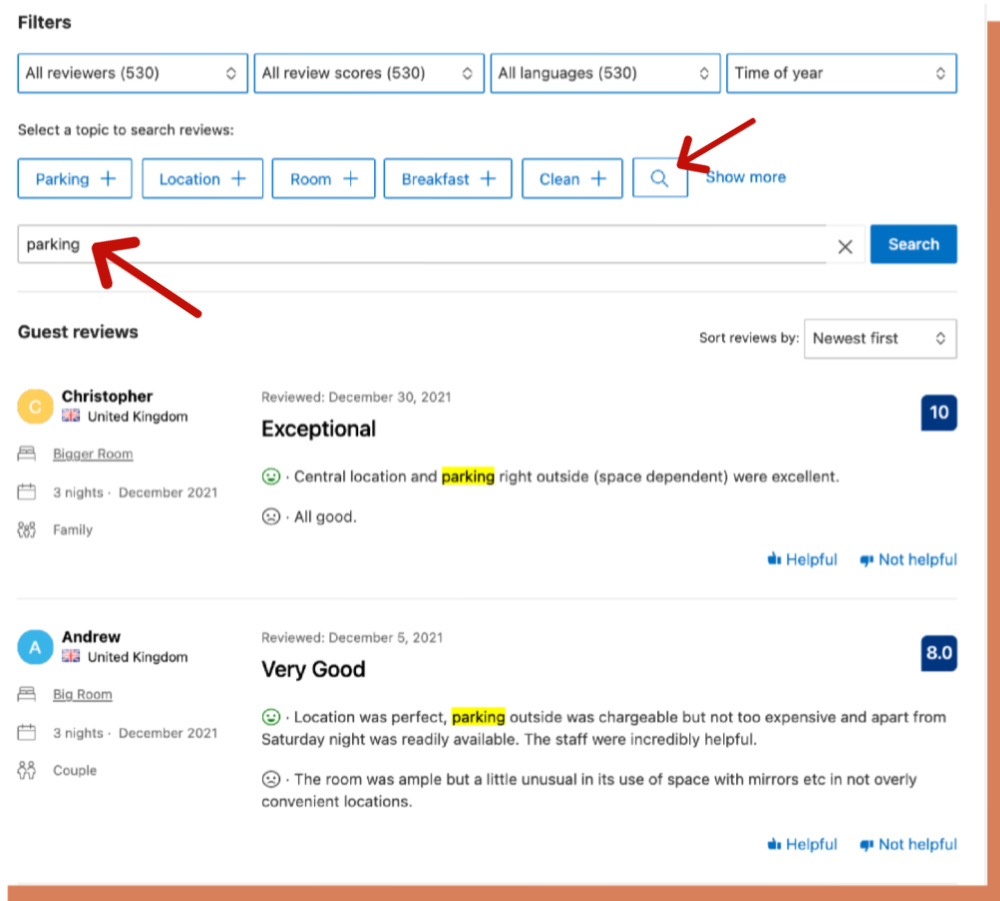
Maybe they’ll say it’s free and there’s plenty of it. Maybe they’ll say it’s three blocks away and it costs $50 a night. Or maybe they’ll say there are only two spots and you have to fight Hunger Games-style each night to see who gets it. Good or bad, it’s still going to be useful information.
You can do this with all amenities you need or any term you want to search for.
Heading to Arizona? Check out this post on where to stay in Scottsdale for very different experiences. Mad Men, massages, and more.

8. Need WiFi? Always check the fine print
Likewise, if WiFi is one of those super important factors to your trip’s success, you may want to dig a little deeper. Just because a hotel advertises “free Wifi,” that doesn’t always mean what you think it means. “Free WiFi” sometimes means… only in the lobby. Or, only on the bottom two floors.
Some hotels list “WiFi” as an amenity, and we’ve come to assume that means it’s free because geez louise it’s 2023 this stuff should just be emanating from our pores at this point. And yet, there are many hotels that still charge you for an internet connection. Or their listing will say “high-speed WiFi” which often translates to: We’ll give you free WiFi that’s so slow it’s basically useless, but if you want high-speed WiFi you’ll have to pay extra for it.
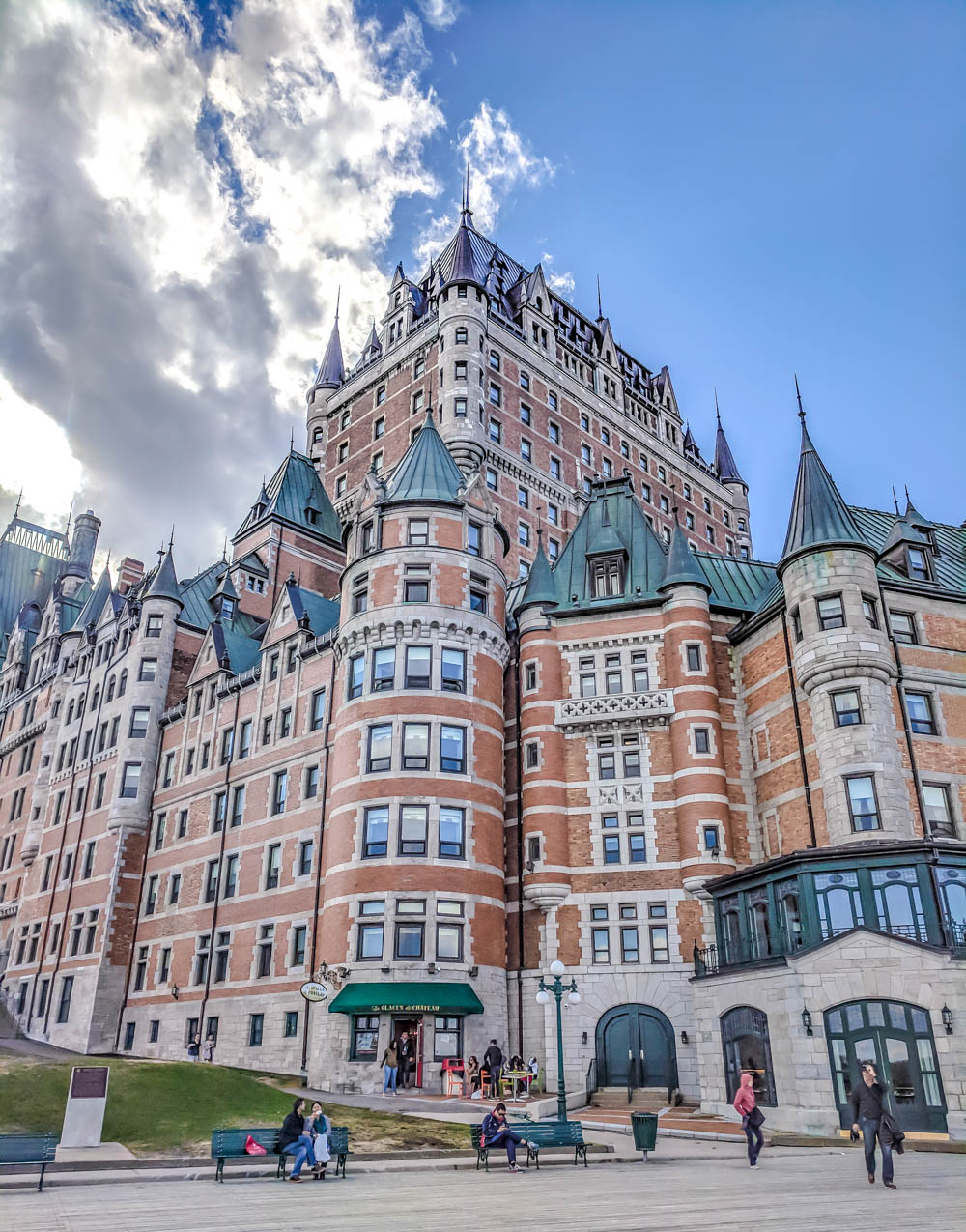
Sadly, this is usually at the more expensive hotels where they know you probably won’t sweat a few extra charges so they can squeeze every penny out of you. As this article on why expensive hotels charge for WiFi puts it: even “hostels setting world records for the most bunk beds in a single room still provide free wifi.”
Some hotels will have the crappiest WiFi that may only work in one corner of their lobby, or only on the stairs in the hallway outside your room. (I’ve stayed at both of these places.) But, because it is free, they can still advertise “free WiFi” as an amenity.
But you know what? People be cranky about their WiFi! So, if you want to know the reality of the WiFi situation at a property you’re interested in, check the reviews. But also, people be cranky… so remember there’s always a good chance he or she is exaggerating their negative experiences here.
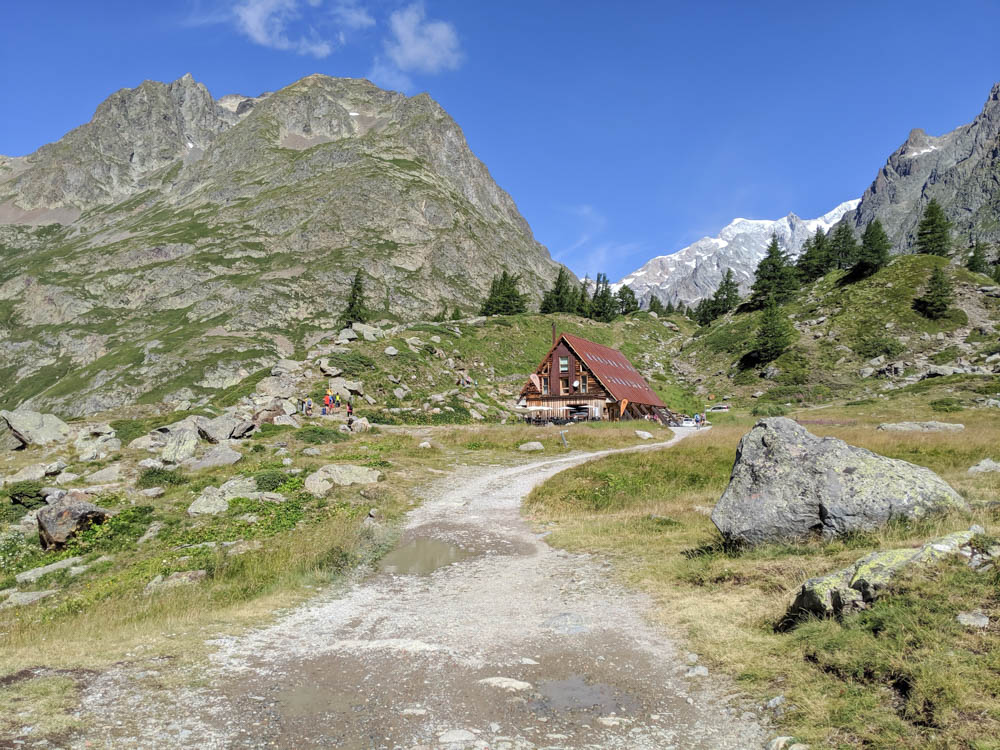
9. Breakfast and airport shuttles aren’t always complimentary
When mulling over all the factors to consider when choosing a hotel, know that just like parking and WiFi, just because a hotel offers breakfast and/or an airport shuttle doesn’t mean those things are free.
Many of us grew up in the days when breakfast at a hotel was always free. And the fact that a hotel offered shuttle service implied it was always complimentary. But such is not the norm anymore!
While many, many hotels do still include breakfast in the cost of the room, just as many others do not. This is especially location-dependent as well. Most mid-range chain hotels in the United States still offer this. But “free breakfast” is a rarity in many European destinations. Instead, be ready to shell out $24 per person for a few slices of bread with jam. (I’m looking at you Switzerland.)

Likewise, many hotels offer “airport shuttles” but rarely does this mean free anymore. Most of the time, it means they will hire you a private black car to take you to the airport. While that’s not always a bad thing, you’ll surely be able to find better airport transfer deals by booking on your own.
The thing to keep in mind when looking at all of the factors you have to consider when choosing a hotel is: if something is actually free, it will say “free” or “included” next to it, as the hotels want to use this as a selling point to get you to choose them. If the listing omits these words, chances are you’ll have to pay extra for it.
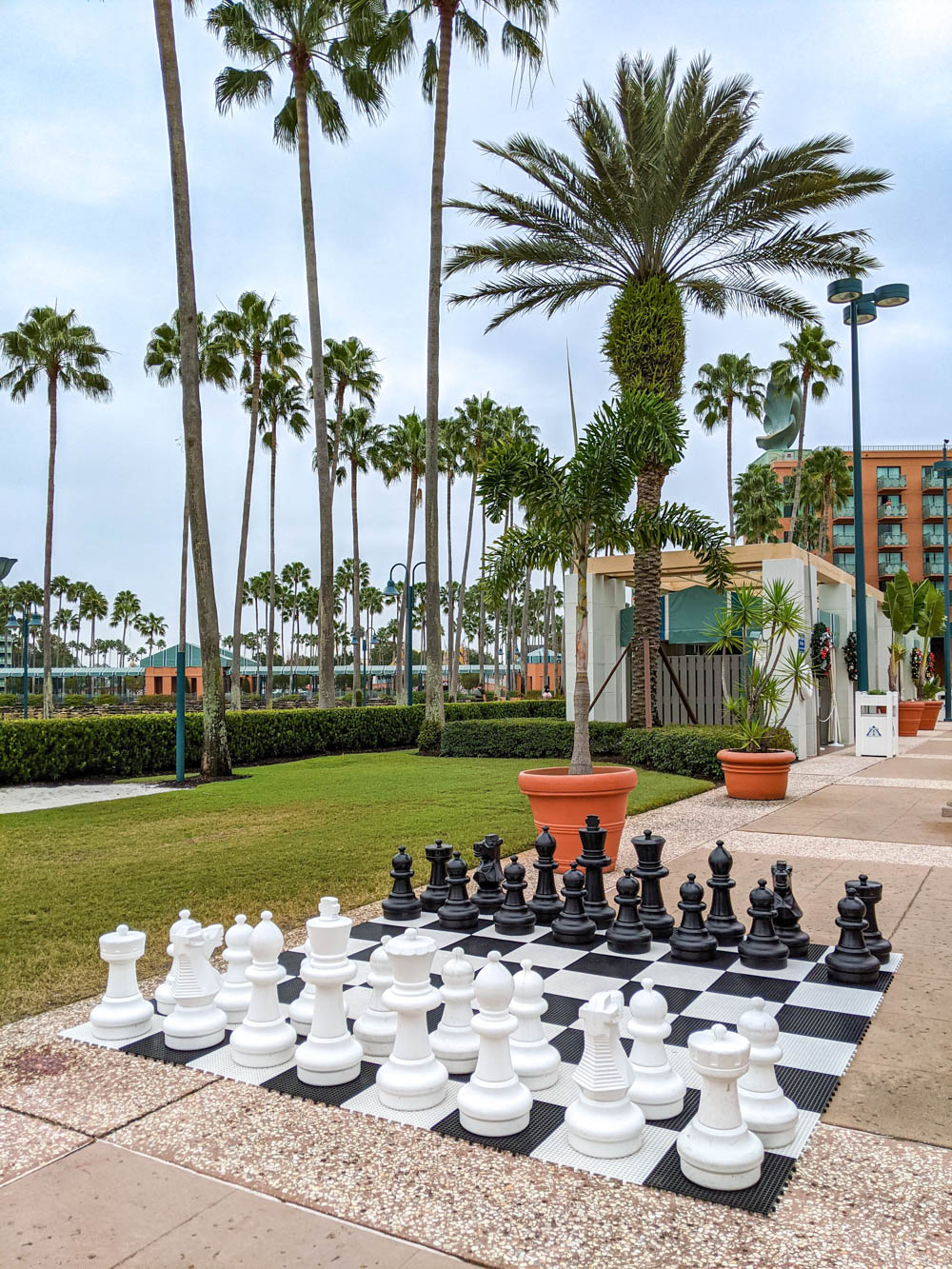
10. Note the luggage storage options
As someone who always tries to squeeze the most out of every destination I visit and every minute I have available there, I utilize luggage storage a lot. This is a huge priority for me.
Most hotels will happily hold your bags for free before you check in so you can go explore the city until your room is ready, or hold them after you check out so you can do the same before you have to leave for the airport.
This service is almost always free, but still not always. I have stayed at hotels before that charge for this either by the hour or a flat fee. Some hotels don’t offer this at all. One hotel recently didn’t even know what I was talking about when I asked if they could hold my bag for a couple of hours. The guy literally had no clue what it was I wanted him to do. And this was at a hotel in Pennsylvania, not a remote alpine village.
If this is important to you, it’s worth it to see what and how the hotel offers it. By that I mean, you may want to inquire about how they store the bags.
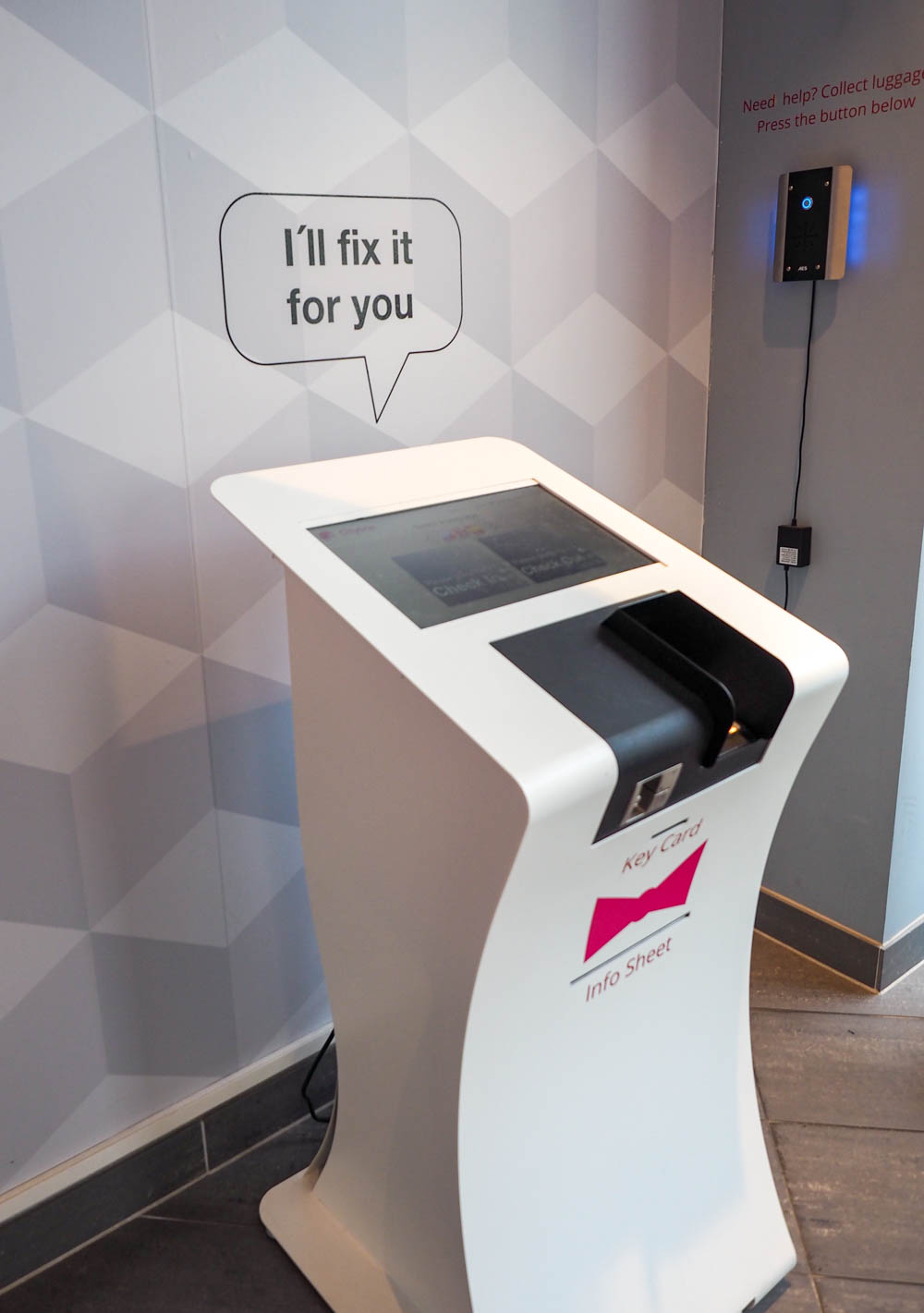
Investigate how the bags are stored
Most decent places will keep your bags in a locked room behind the front desk and provide you with a tag you’ll need to retrieve it later. However, some places will simply push your suitcase over to a completely unsupervised side of the lobby where anyone can walk in off the street and take what they want. Some hotels will keep it in a dedicated luggage room… that anyone can access themselves… secured only by the honor system.
If you’ll have valuables in your luggage and will need to store it, please ask about their bag storage. As someone who has been robbed while solo traveling abroad, I can assure you that you don’t want to have all your valuable things stolen while on vacation.
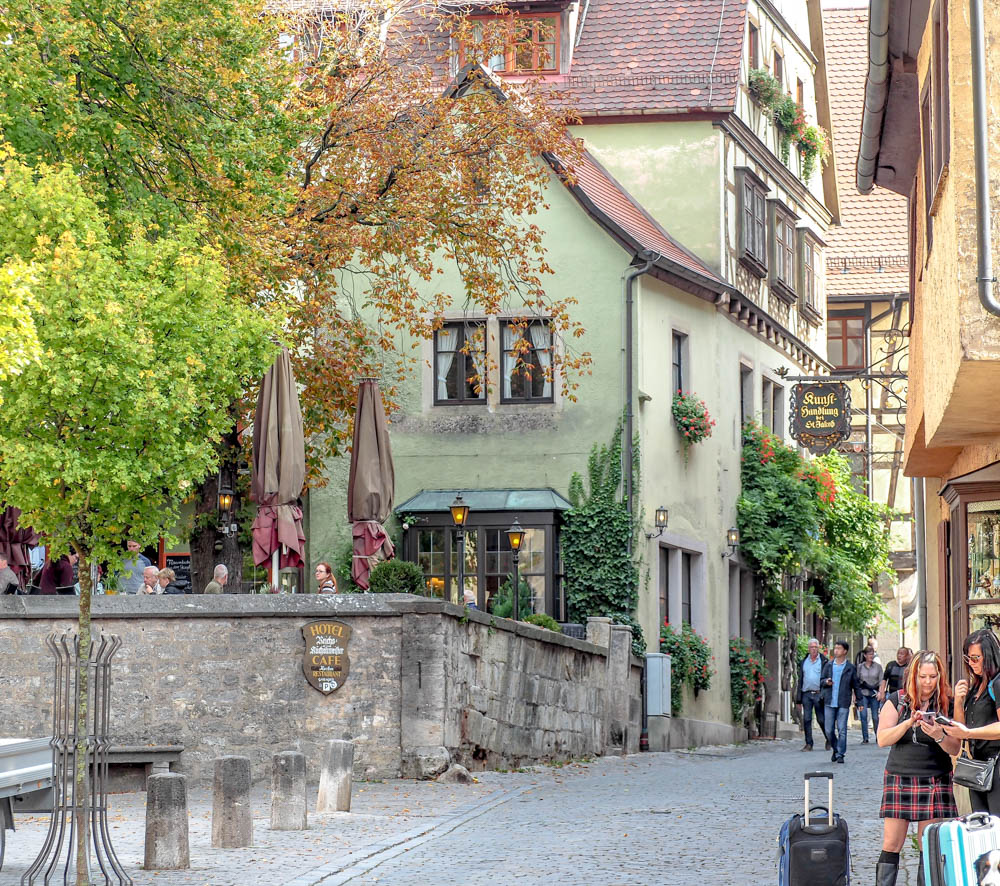
On-demand luggage storage
There are also a number of companies now that offer on-demand luggage storage—Luggage Hero, Stasher, and Nanny Bag are some examples. Let’s say you have to check out of your VRBO and have a few hours to kill before you head to the airport. You can look up the nearest luggage storage location and drop your bags there—it won’t necessarily be a hotel.
After checking out of our rental apartment in Santiago, Chile I dropped my bags off at a hostel (that I had not stayed at) using Airkeep. They held my bags in their luggage storage room despite the fact that I had not stayed there and wasn’t planning to, and I only paid a small fee.
The number of these companies continues to grow and I am totally on board with this idea!
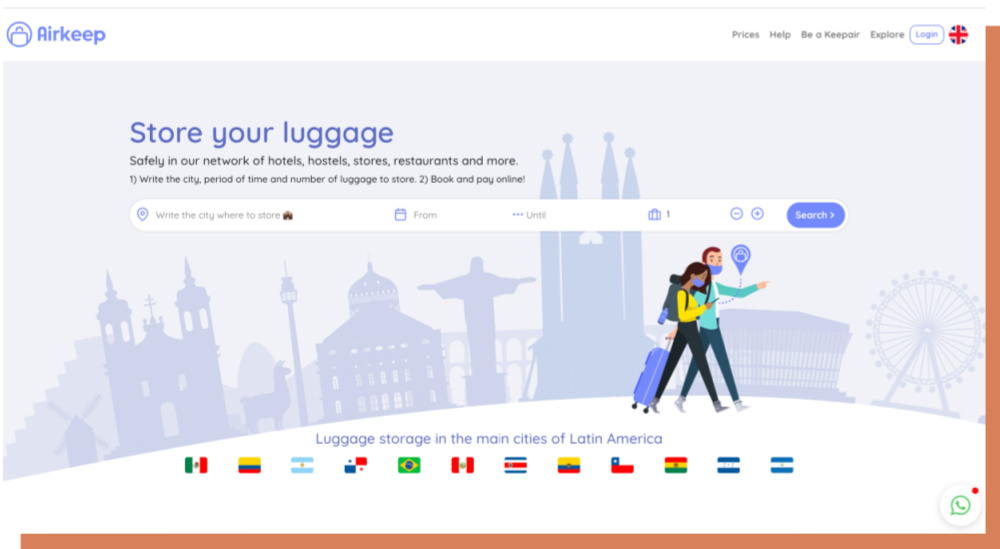
11. Note the dining options on site and nearby
Depending on your destination, the available dining options in and around your hotel may be big factors to consider when choosing a hotel.
The more remote your hotel, the fewer dining options you’ll have, and the more important finding a hotel with dining options will be. A delicious catch-22 if you will.
If you’re staying in a major city like Rome or Taipei, available dining options are not something you’ll especially need to worry about. (Well, if you’re okay eating out of toilets in the latter, that is.) However, say you’ll be crashing a ways outside the city where there are more volcanoes than restaurants. In that case, you’ll need to know what your options are.
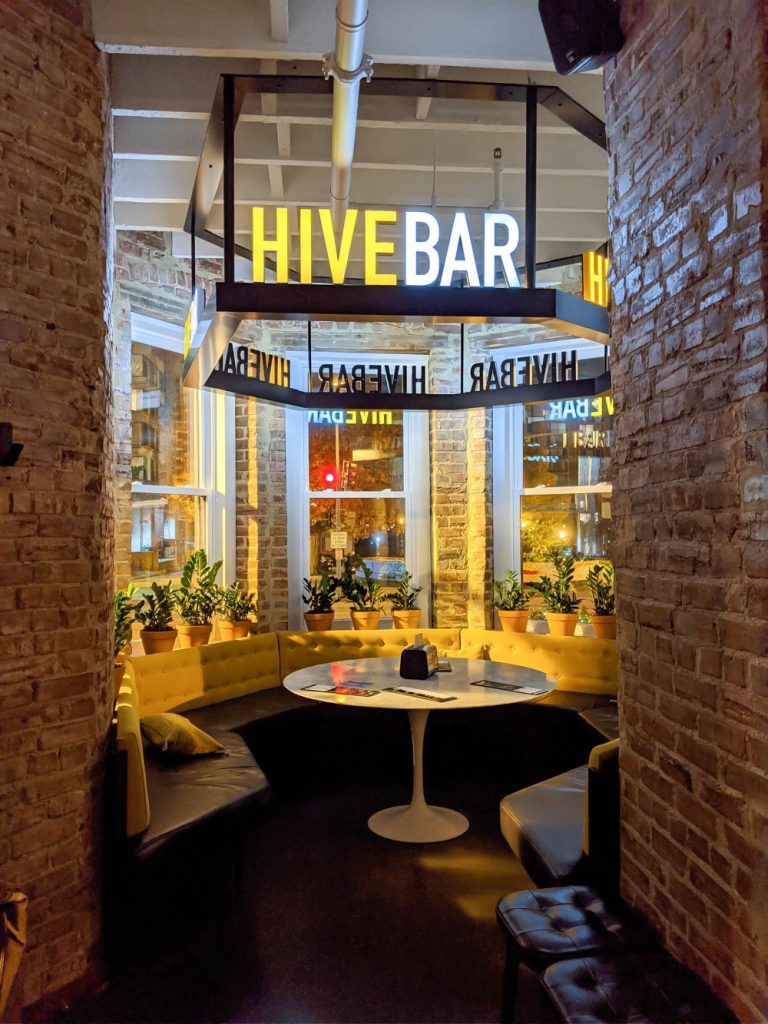
Typically, hotels in remote areas will offer some kind of dining—whether it’s a small café on site, a communal dinner at a set time, or a vending machine at the very least. But your options will be limited, especially if you arrive at off-hours.
Likewise, the more remote a restaurant is, chances are the higher the prices are going to be. On my first visit to Iceland I stayed at a remote hotel in the countryside, far away from everything. For dinner, the only thing around was a Domino’s Pizza where we spent over $75 US on two medium pizzas and a 2-liter. (This being the only eatery anywhere around, but also because this is Iceland.)
Choosing a hotel that lacks a plethora of dining options is not always a deal-breaker though. If you’ll have time to stock up on food before you arrive, you’ll be fine. But if you get in late or have to leave early, you should take that into consideration and keep searching. I always recommend packing backup snacks when traveling because you just. never. know.
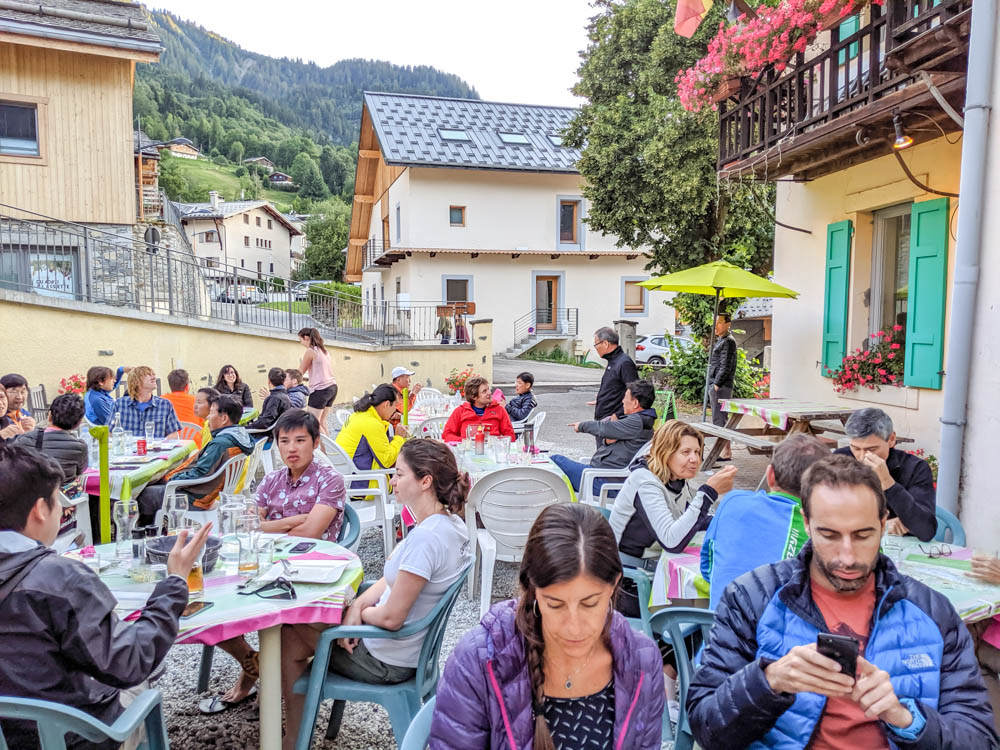
12. Timing is everything!
Though it may not be the first thing you think of when planning travel, timing is absolutely one of the crucial factors to consider when choosing a hotel. Specifically, when you’ll arrive and when you’ll leave the property.
If you’ll be staying at a hotel in a major city, you’ll most likely enjoy 24-hour front desk service and check-in/check-out abilities. However, if you’ll be staying in a smaller town and/or in a more remote area, you’ll need to pay extra attention.
Some hotels in these areas only have certain times you can check in and out, certain times when a staff member is even on site, and/or certain times the doors are just plain locked.
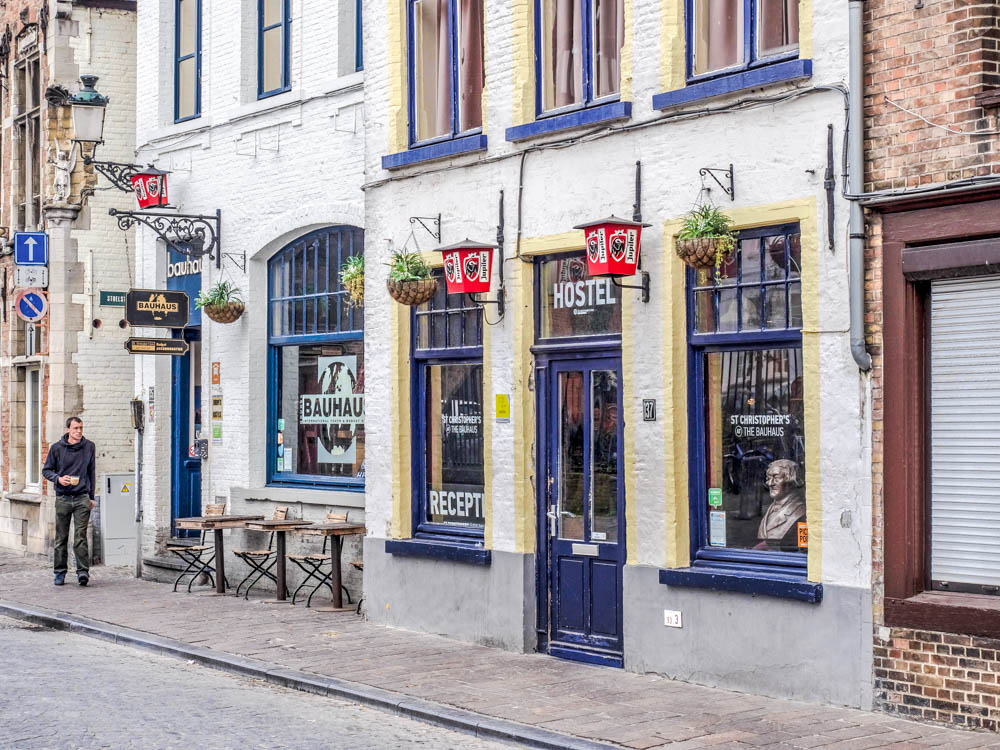
That one time in Oaxaca…
Case in point: my trip to Oaxaca to celebrate Day of the Dead in Mexico. The next morning after the festivities, we were taking the 6 am bus back to Mexico City. Only… our hotel was locked. As in, we were locked in and couldn’t leave! There wasn’t a human in sight but there was a massive barred cage preventing us from leaving.
Beyond the UNFATHOMABLE SAFETY HAZARD this presented, we were in danger of missing our bus. We tried everything—shouting, calling the front desk, looking for another way out, etc. I was fully on my way to climbing out the window in the stairwell when I decided to try calling the desk one more time.
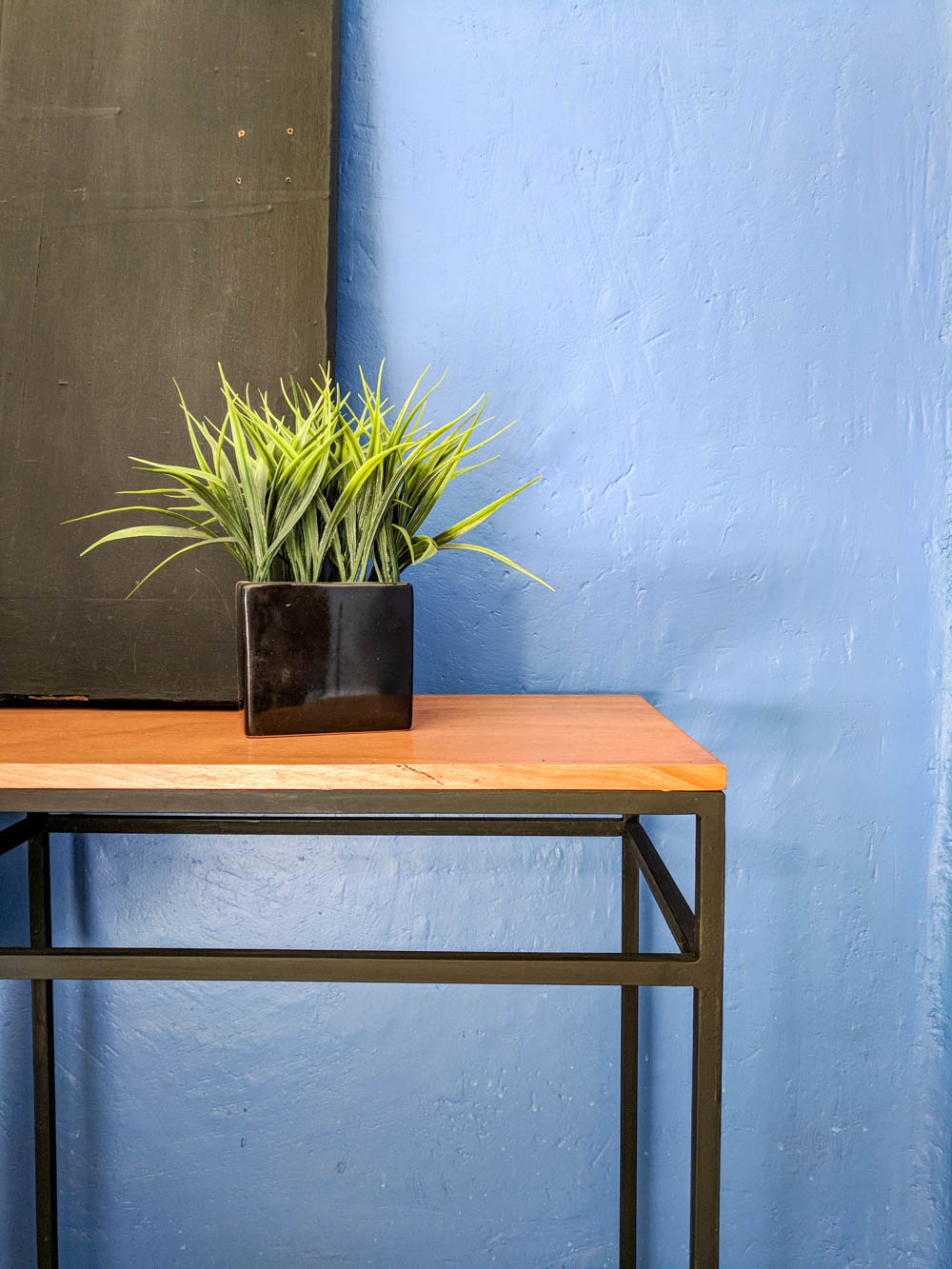
Luckily, someone answered! That someone was fully asleep and spoke no English. I used what little emergency Spanish I knew to at least create enough of a panic that someone eventually came out to see what my problem was.
Potential future catastrophe aside, this is just another important reminder to make sure your hotel has “hours” that mesh with your plans. The same would apply to arriving early to a closed hotel and… having to sleep outside in the park? Maybe check the weather forecast while you’re at it.
13. What is the cancelation policy?
Once upon a precedented time, I would always book the cheaper, non-refundable option because I had NEVER canceled a trip up to that point in my life.
Now, in these unprecedented times, I will absolutely NOT book a hotel without a free cancelation option. I have canceled one… two… OK, eight trips in the past two years. And still, the situation remains unpredictable. I cannot see far enough ahead to a time when this won’t be one of the most necessary factors to consider when choosing a hotel.
In these uncertain times, with borders closing and events getting canceled left and right, it’s flat-out bananas to book a hotel that you can’t cancel. Luckily, the travel industry realizes this and most hotels now offer some kind of free cancelation option. Yes, you may pay a little more for this option, but I personally believe it is worth every extra penny.
Even if a hotel doesn’t typically offer free cancelation (yes, I still see this), the good thing is that if you book with them through Booking.com they almost always will.
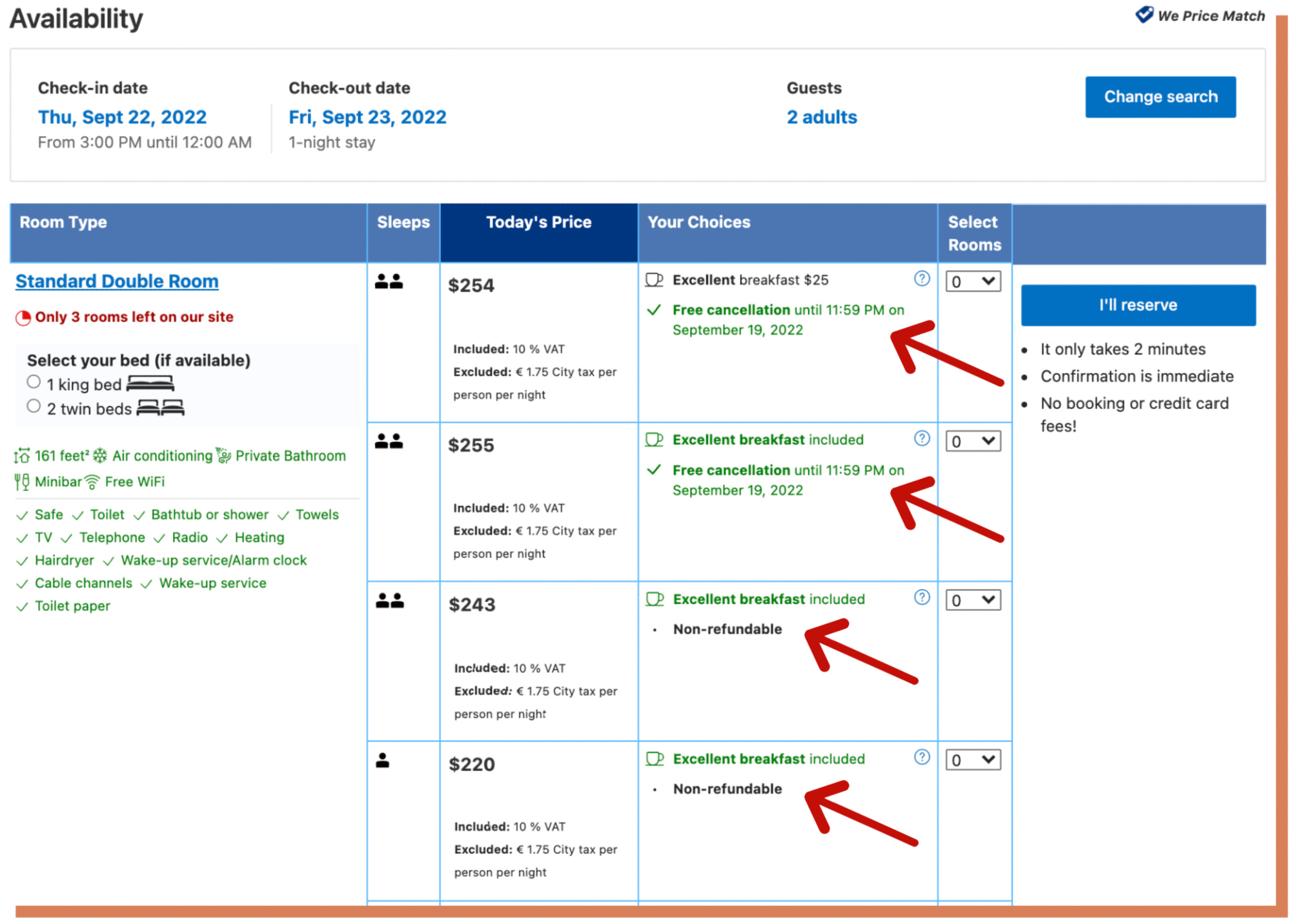
14. Prioritize, prioritize, prioritize
As I’ve already said, the most important factors to consider when choosing a hotel are the ones that are most important to YOU. For me, it’s location. For you it might be price, wheelchair accessibility, ocean-front view, parking availability, or one of a hundred other things.
Therefore, while I greatly appreciate a friendly staff, I will overlook a rude staff if I can find a hotel in a great location. (I live in Boston after all; I’m accustomed to *rude* as the default anyway.) Negative reviews about snobby receptionists carry very little weight for me in this case.
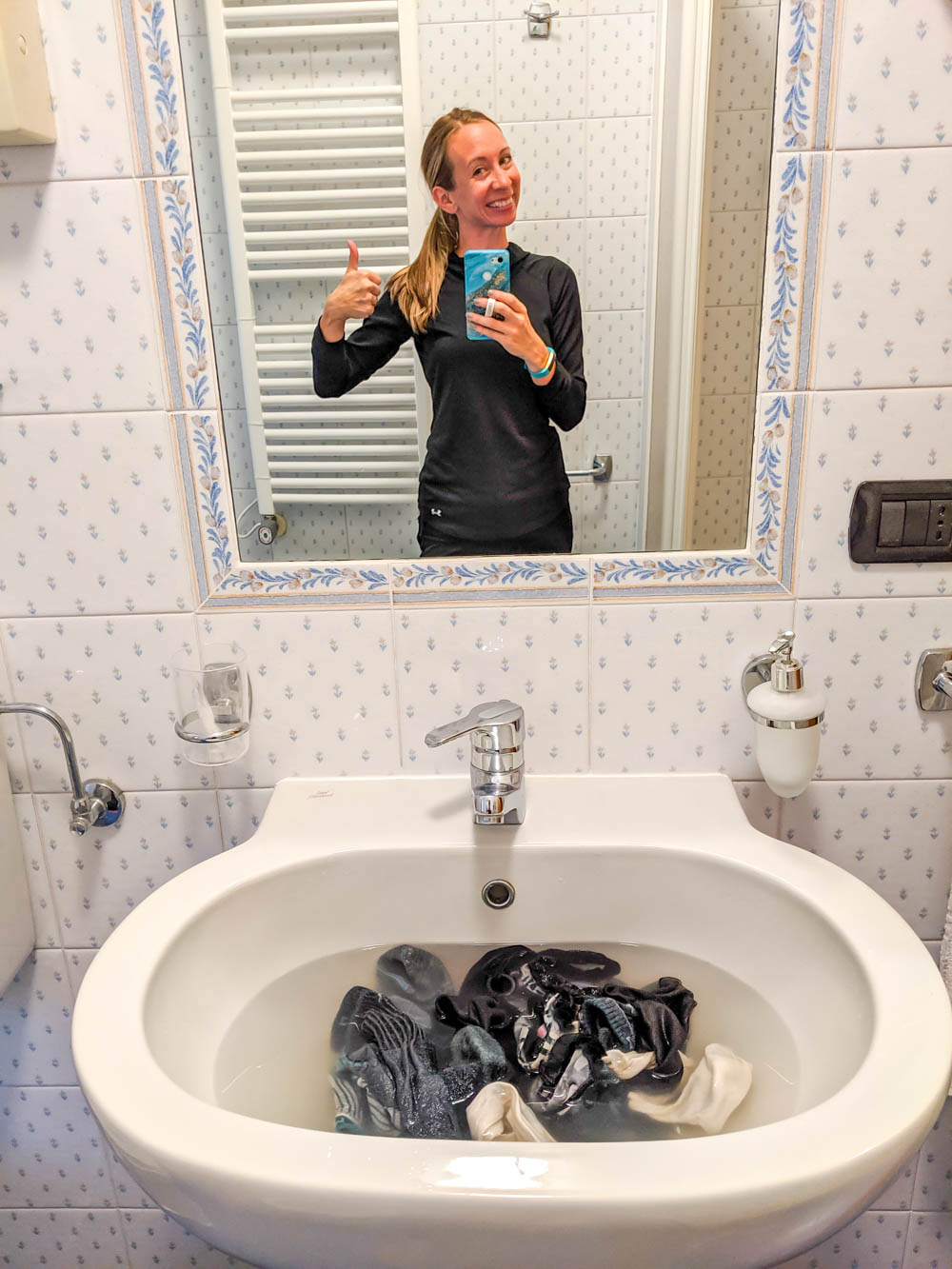
Keep this in mind as you sift through your options. If the reviews complain about how far from the city center it is, and that you have to take a bus to get there, but it’s the only one you can afford, don’t let that stop you from visiting! I preach the importance of staying as close to Oktoberfest as possible, but many visitors stay in towns an hour outside the city and take the train to the Theresienwiese because it’s actually affordable.
Start by filtering the results with your tippity-top priorities, then compromise when and where you have to. As long as you’re willing to accept you probably won’t be able to *have it all* and that you may need to compromise, I can almost guarantee you will find a hotel that fits your needs.
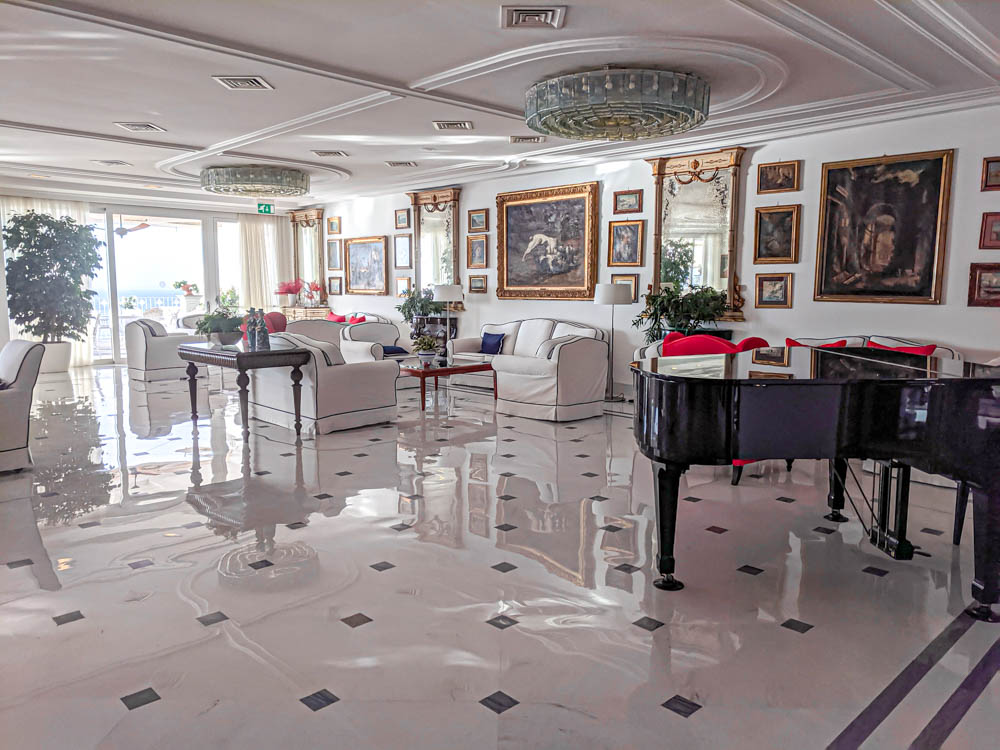
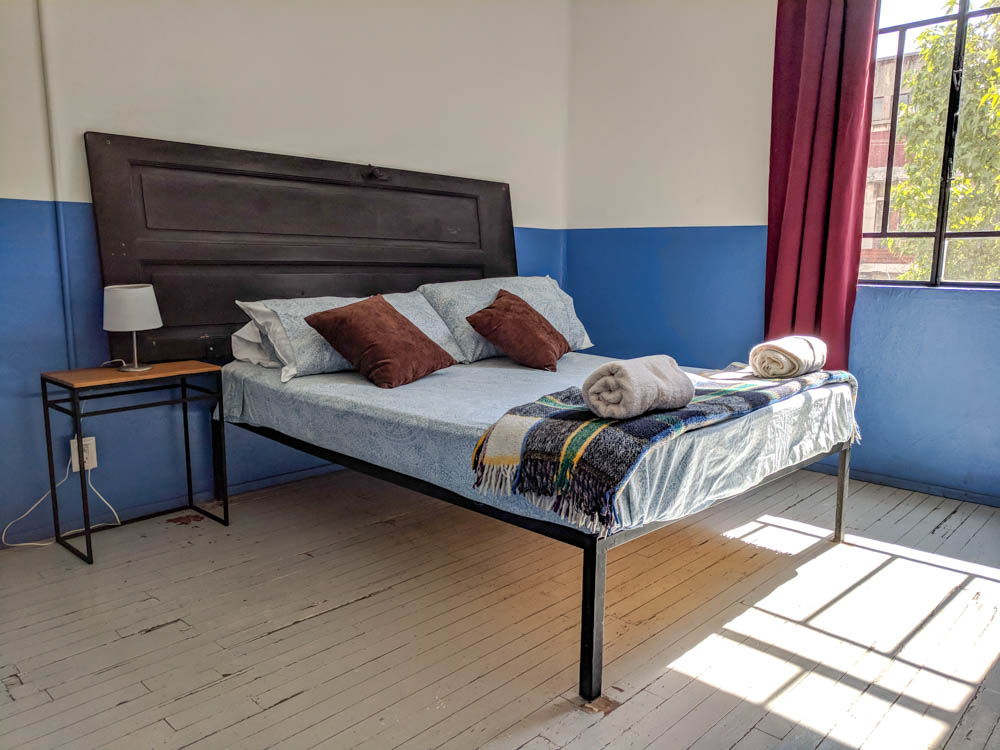
15. Price and worth aren’t always synonymous when choosing a hotel
Now, when weighing all the factors to consider when choosing a hotel, know that price and worth are not always synonymous. There are many 5-star hotels that will disappoint you, and many cheap hostels that will impress you.
Don’t shy away from booking the cheapest option, assuming it must be trash. And don’t spend more than you’re comfortable with, just because you assume the overpriced boutique hotel must be amazing.
This is where reviews really come in handy. It’s here in the log of past guest experiences where you’ll see how that fancy pants hotel really treats their guests and really cleans their rooms. And it’s here where you’ll read how the family-owned guesthouse repeatedly goes above and beyond for its guests.
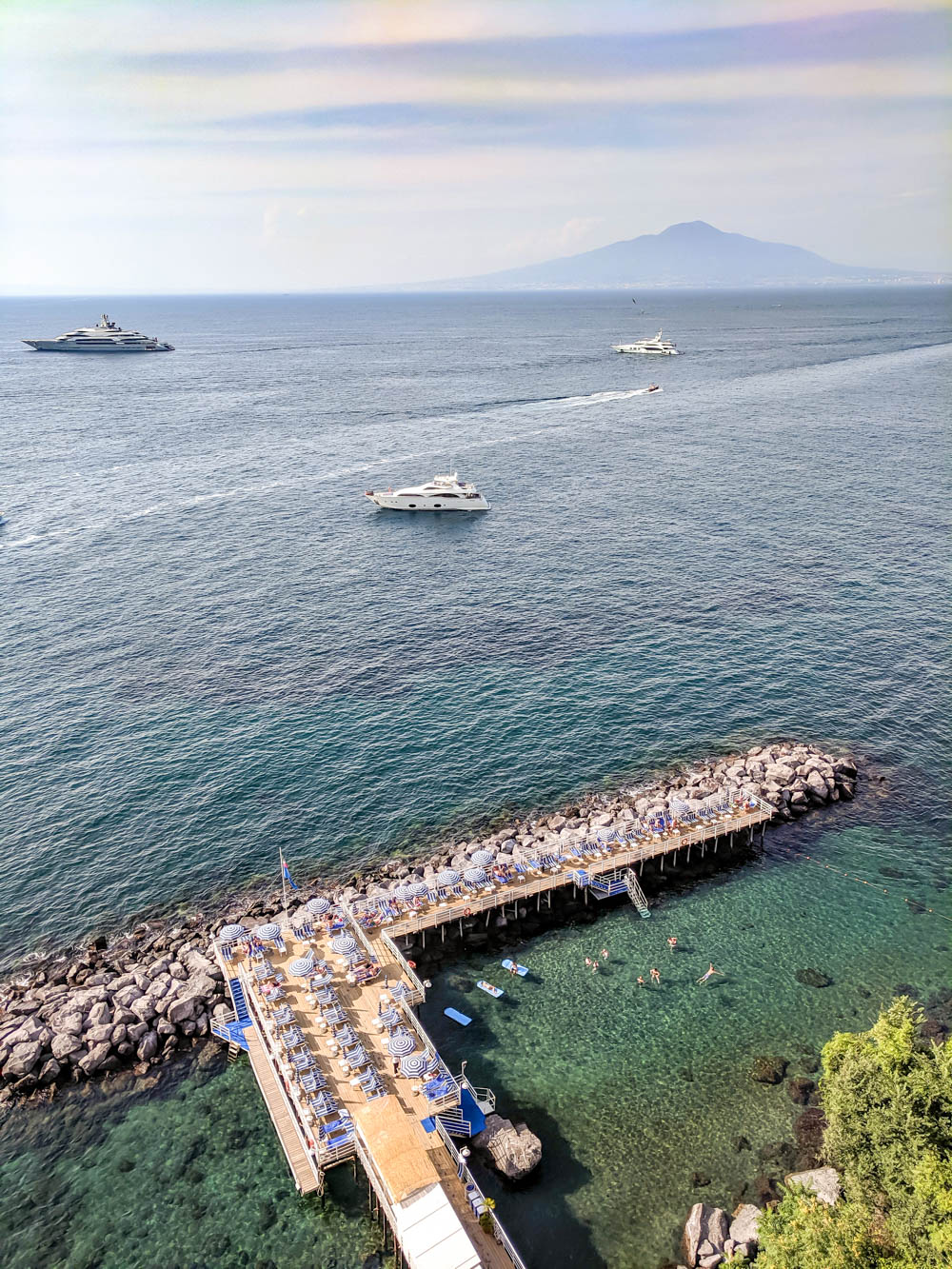
Frankly, when I stay at a super fancy place (which is not the norm), I’m rarely impressed. It’s always just… too much stuff I don’t need. I don’t need conference rooms and fitness centers and business centers. I don’t need spas and grand chandeliers and tomorrow’s weather report delivered to my room each night. And I don’t need people pushing the elevator buttons for me or pulling back my sheets at night. I am a capable adult human; I am not a delicate show cat! And yet, these are all things that I have inadvertently paid for.
Will the place that charges a quarter of that make you take your own bags to your room and Google your own forecast? Sure. But will the owners also invite you to their fire pit and offer you s’mores, while their dog curls up in your lap, and give you locals-only tips? Definitely. (Big shout-out to the Grünberg Haus in Vermont here.)
Just know that “worth” is directly related to your experiences and not exclusively to price.
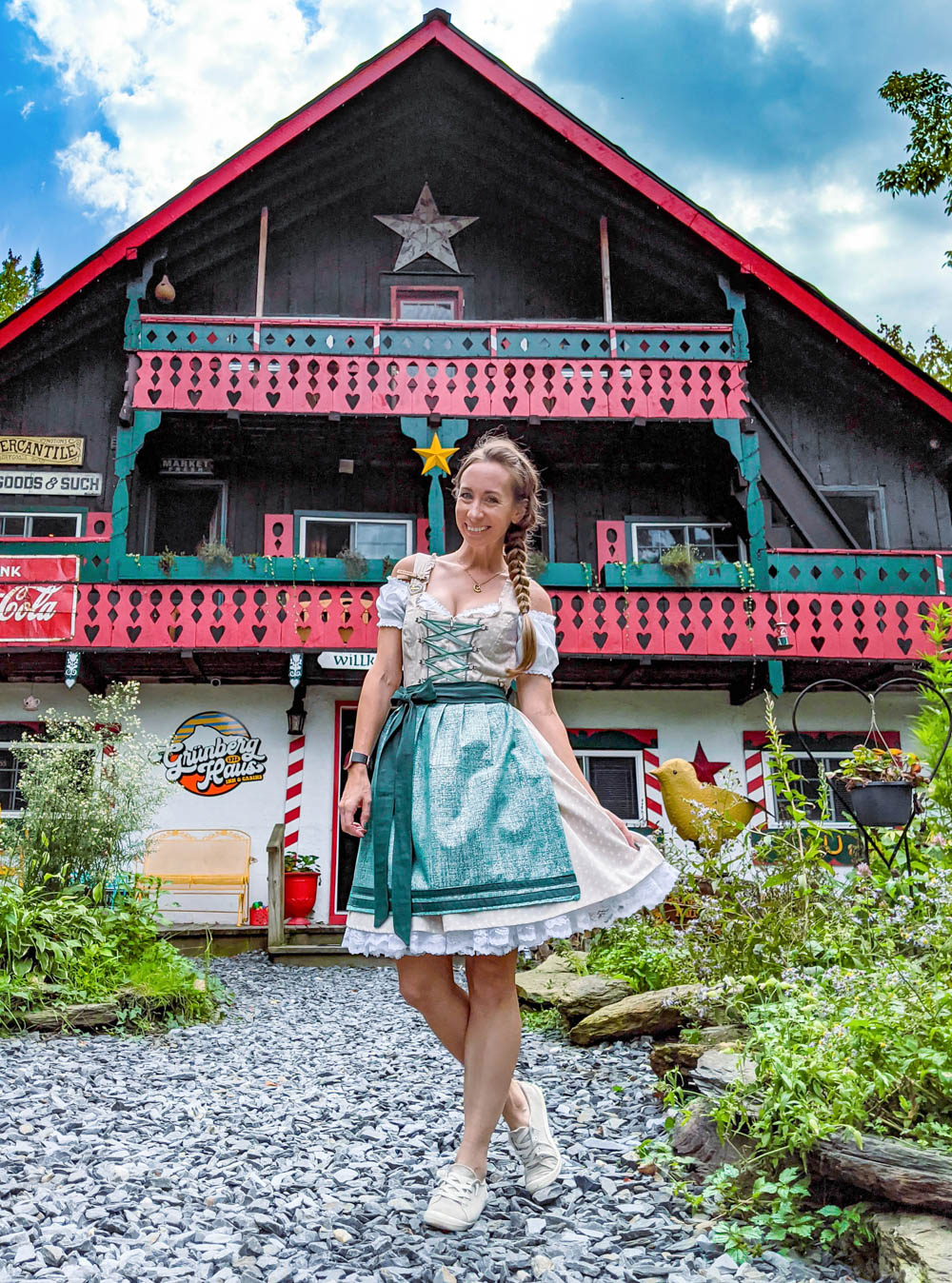
16. Don’t underestimate the values of convenience, safety, and peace of mind
Having said that, there are some factors to consider when choosing a hotel that won’t show up on any hotel booking search engine. Those are convenience, safety, and peace of mind—the intangible things that only have value to you.
So often when we’re planning trips we gravitate towards the lowest price. We sort hotels and tours and rental cars by “Price: low to high”. And maybe that’s a good starting point, but it shouldn’t always be the deciding factor.
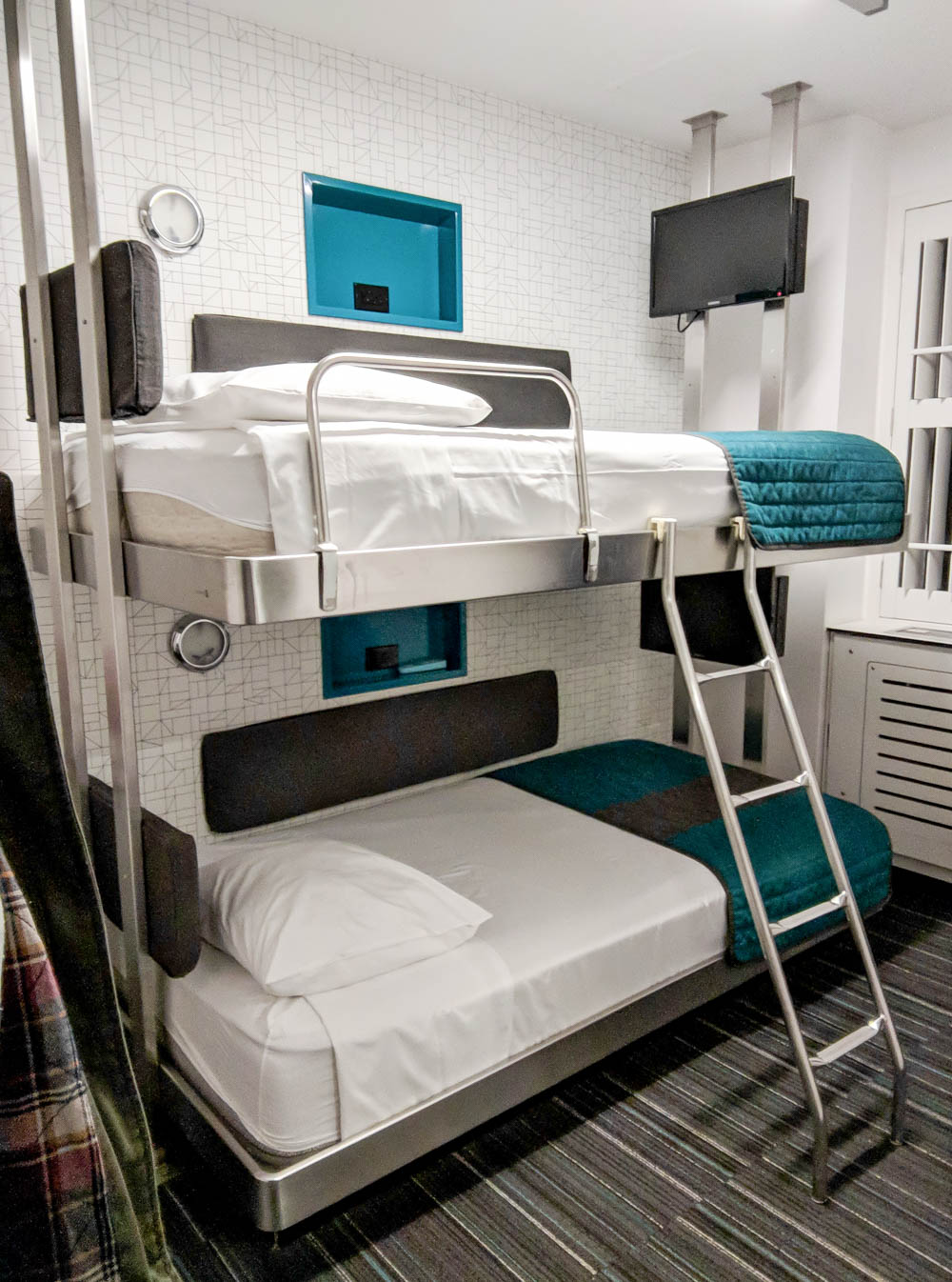
Things like convenience, safety, and peace of mind are intangible qualities that we often don’t even recognize until we’re missing them. It’s easy to choose a cheaper hotel in an unsafe area… from your comfortable couch in the safety of your own home. But walking the dark streets at night by yourself in a foreign country just so you could save $10 a night feels a lot less like a wise travel decision in the moment.
Opting to stay in a remote B&B in the country because it’s cheaper seems totally fine when you book it. But that choice makes a lot less sense when you realize you can’t find anything to eat or that Uber just won’t go there.
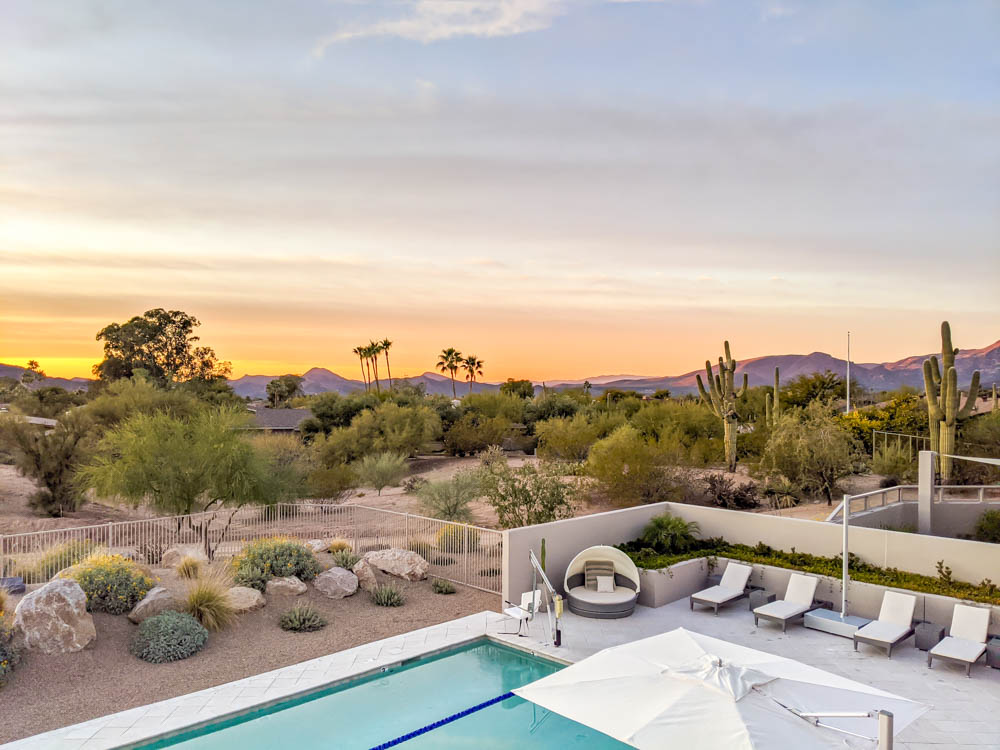
Peace of mind is priceless when choosing a hotel
The same goes for peace of mind, definitely one of the highest value aspects of travel I’ve come to basically worship over the years. Paying more for a hotel that offers in-room safes, locked luggage storage, and a 24-hour front desk is worth every penny when you can free your mind of worry and concentrate on the awesome travel experiences you’re having instead.
In other words, some of the most valuable amenities a hotel can offer you aren’t even listed. These vary from person to person and only you can put a value on them. So do not be afraid to spend more if it means you’ll have to worry less. This has been my travel motto for the last few years and I now swear by it.
Your safety, your peace of mind, and the ability to have a stress-free trip are priceless and they should be protected.
I hope I’ve been able to help you sort through all the noise and choose the perfect hotel for your upcoming trips. As always, reach out with questions!
Of all the factors to consider when choosing a hotel, which is the most important to you?
Let me know in the comments below!
Save this info, pin this image:


